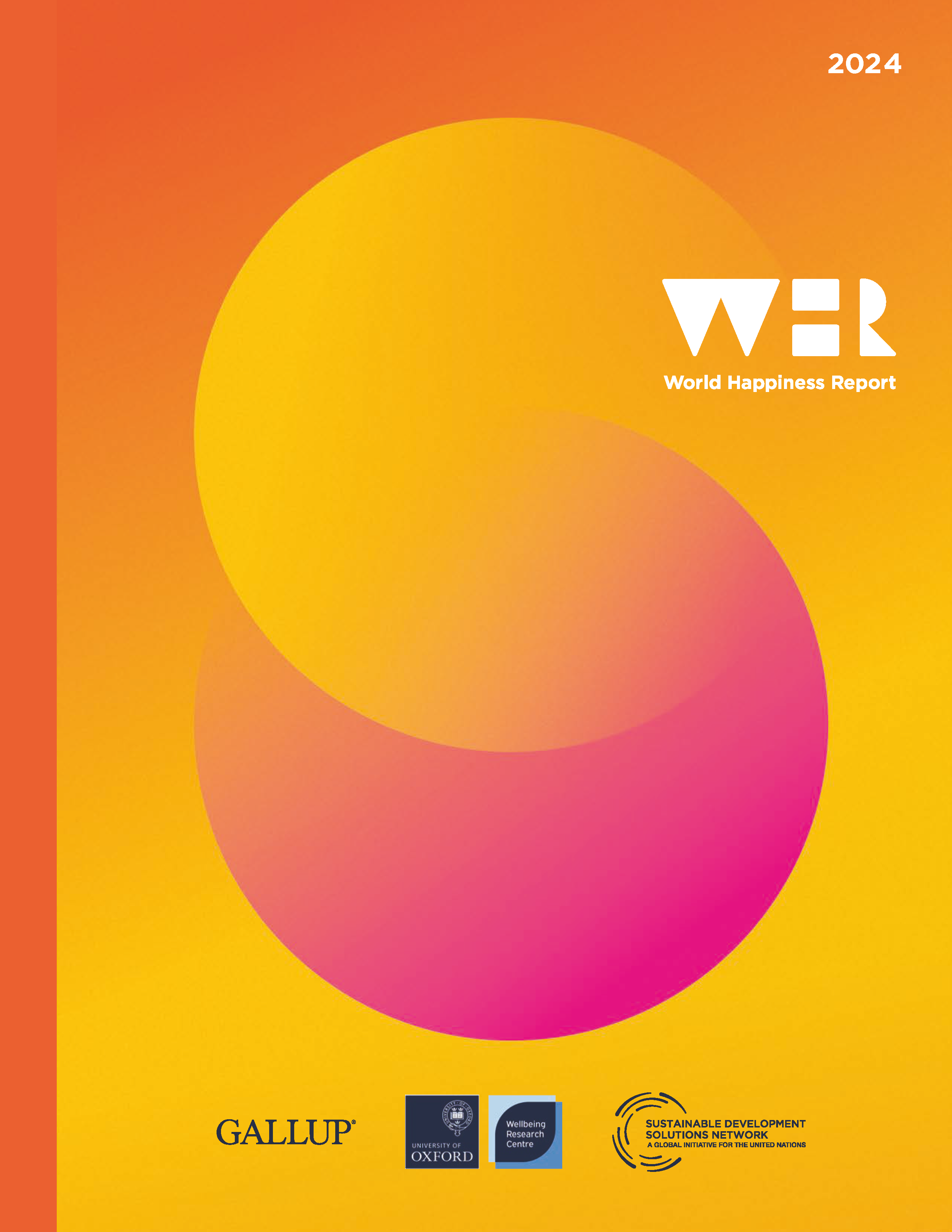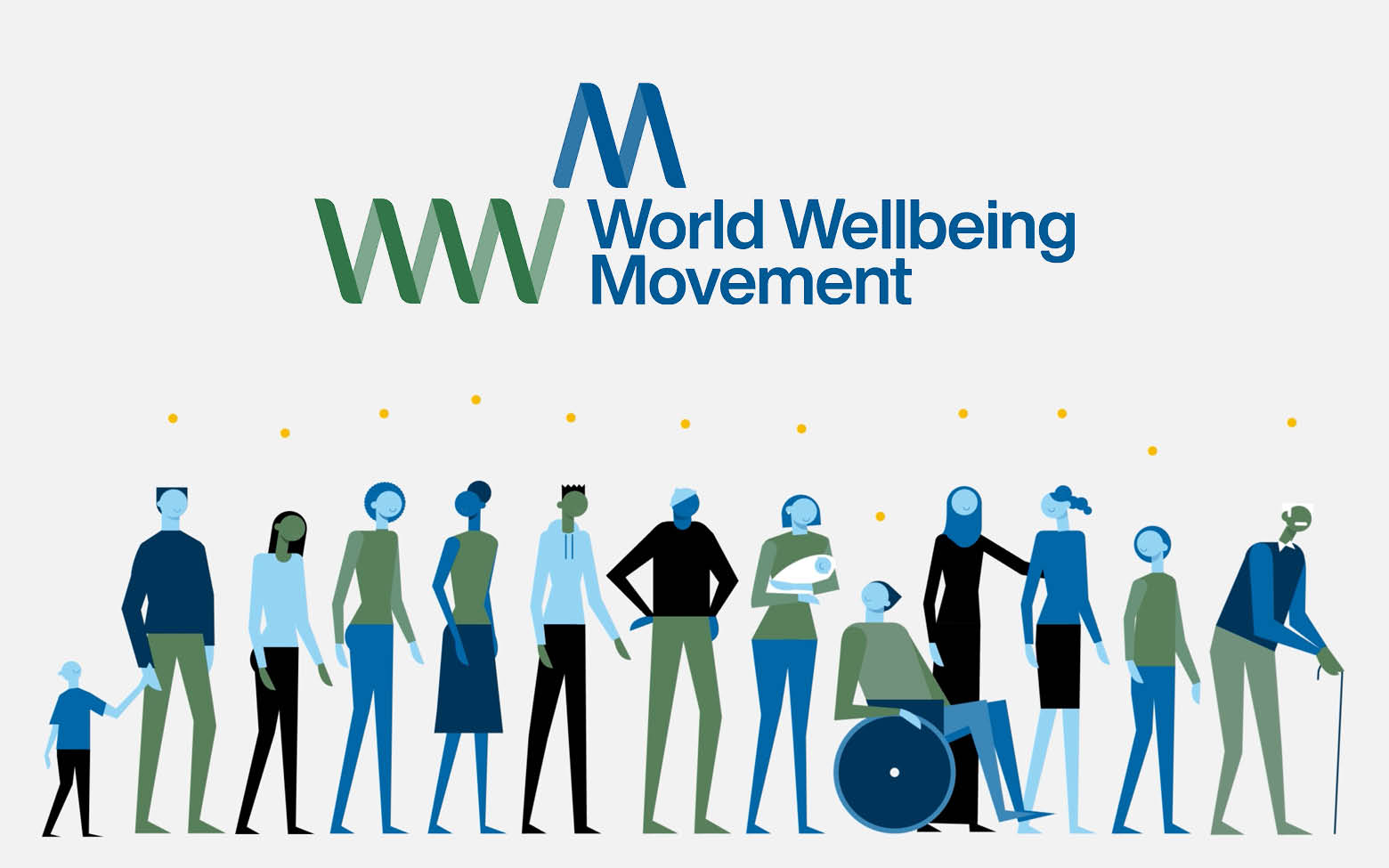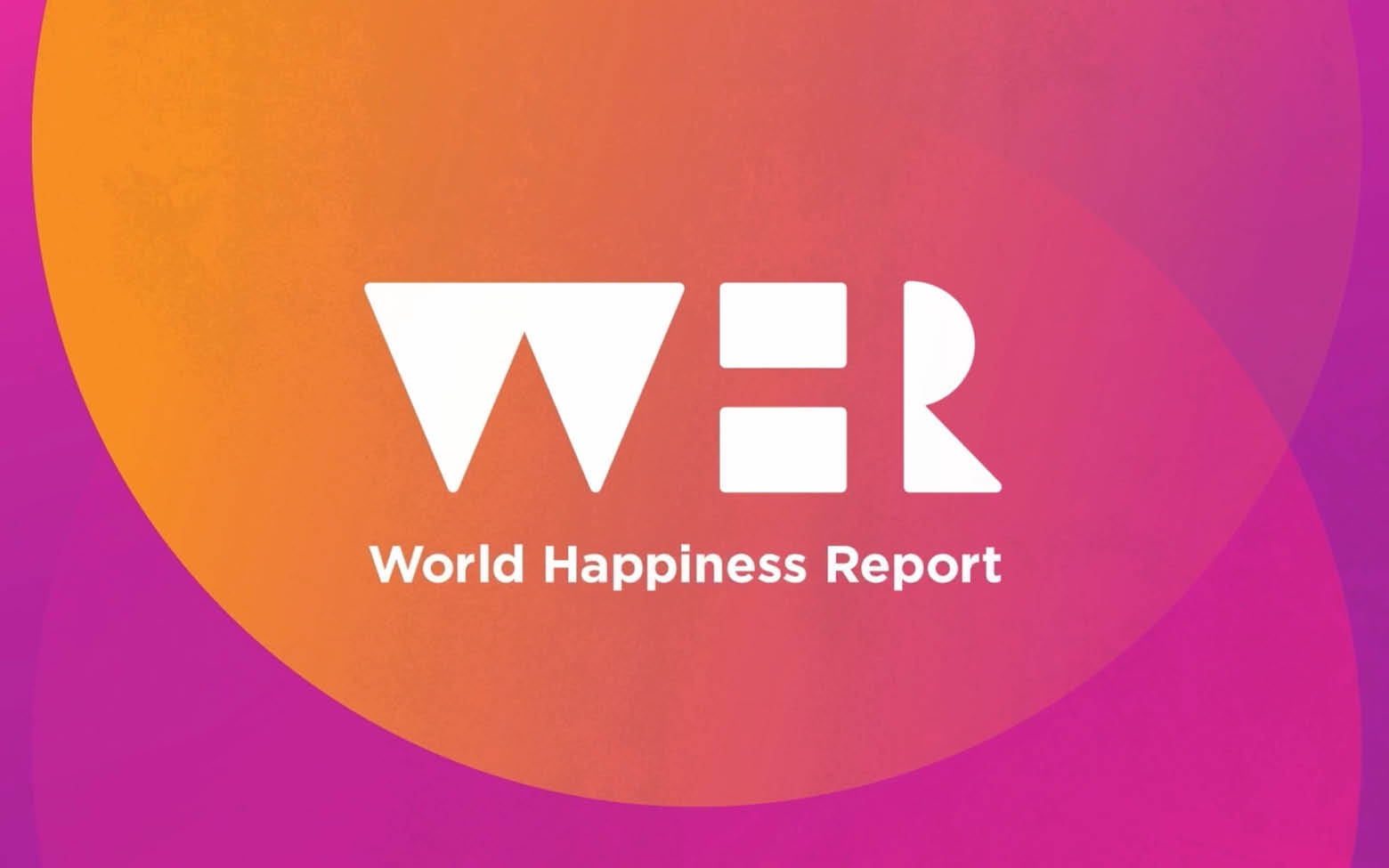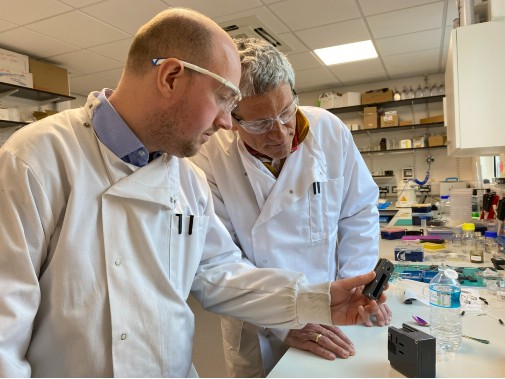
Research Topics & Ideas: Healthcare
100+ Healthcare Research Topic Ideas To Fast-Track Your Project

Finding and choosing a strong research topic is the critical first step when it comes to crafting a high-quality dissertation, thesis or research project. If you’ve landed on this post, chances are you’re looking for a healthcare-related research topic , but aren’t sure where to start. Here, we’ll explore a variety of healthcare-related research ideas and topic thought-starters across a range of healthcare fields, including allopathic and alternative medicine, dentistry, physical therapy, optometry, pharmacology and public health.
NB – This is just the start…
The topic ideation and evaluation process has multiple steps . In this post, we’ll kickstart the process by sharing some research topic ideas within the healthcare domain. This is the starting point, but to develop a well-defined research topic, you’ll need to identify a clear and convincing research gap , along with a well-justified plan of action to fill that gap.
If you’re new to the oftentimes perplexing world of research, or if this is your first time undertaking a formal academic research project, be sure to check out our free dissertation mini-course. In it, we cover the process of writing a dissertation or thesis from start to end. Be sure to also sign up for our free webinar that explores how to find a high-quality research topic.
Overview: Healthcare Research Topics
- Allopathic medicine
- Alternative /complementary medicine
- Veterinary medicine
- Physical therapy/ rehab
- Optometry and ophthalmology
- Pharmacy and pharmacology
- Public health
- Examples of healthcare-related dissertations
Allopathic (Conventional) Medicine
- The effectiveness of telemedicine in remote elderly patient care
- The impact of stress on the immune system of cancer patients
- The effects of a plant-based diet on chronic diseases such as diabetes
- The use of AI in early cancer diagnosis and treatment
- The role of the gut microbiome in mental health conditions such as depression and anxiety
- The efficacy of mindfulness meditation in reducing chronic pain: A systematic review
- The benefits and drawbacks of electronic health records in a developing country
- The effects of environmental pollution on breast milk quality
- The use of personalized medicine in treating genetic disorders
- The impact of social determinants of health on chronic diseases in Asia
- The role of high-intensity interval training in improving cardiovascular health
- The efficacy of using probiotics for gut health in pregnant women
- The impact of poor sleep on the treatment of chronic illnesses
- The role of inflammation in the development of chronic diseases such as lupus
- The effectiveness of physiotherapy in pain control post-surgery

Topics & Ideas: Alternative Medicine
- The benefits of herbal medicine in treating young asthma patients
- The use of acupuncture in treating infertility in women over 40 years of age
- The effectiveness of homoeopathy in treating mental health disorders: A systematic review
- The role of aromatherapy in reducing stress and anxiety post-surgery
- The impact of mindfulness meditation on reducing high blood pressure
- The use of chiropractic therapy in treating back pain of pregnant women
- The efficacy of traditional Chinese medicine such as Shun-Qi-Tong-Xie (SQTX) in treating digestive disorders in China
- The impact of yoga on physical and mental health in adolescents
- The benefits of hydrotherapy in treating musculoskeletal disorders such as tendinitis
- The role of Reiki in promoting healing and relaxation post birth
- The effectiveness of naturopathy in treating skin conditions such as eczema
- The use of deep tissue massage therapy in reducing chronic pain in amputees
- The impact of tai chi on the treatment of anxiety and depression
- The benefits of reflexology in treating stress, anxiety and chronic fatigue
- The role of acupuncture in the prophylactic management of headaches and migraines

Topics & Ideas: Dentistry
- The impact of sugar consumption on the oral health of infants
- The use of digital dentistry in improving patient care: A systematic review
- The efficacy of orthodontic treatments in correcting bite problems in adults
- The role of dental hygiene in preventing gum disease in patients with dental bridges
- The impact of smoking on oral health and tobacco cessation support from UK dentists
- The benefits of dental implants in restoring missing teeth in adolescents
- The use of lasers in dental procedures such as root canals
- The efficacy of root canal treatment using high-frequency electric pulses in saving infected teeth
- The role of fluoride in promoting remineralization and slowing down demineralization
- The impact of stress-induced reflux on oral health
- The benefits of dental crowns in restoring damaged teeth in elderly patients
- The use of sedation dentistry in managing dental anxiety in children
- The efficacy of teeth whitening treatments in improving dental aesthetics in patients with braces
- The role of orthodontic appliances in improving well-being
- The impact of periodontal disease on overall health and chronic illnesses

Tops & Ideas: Veterinary Medicine
- The impact of nutrition on broiler chicken production
- The role of vaccines in disease prevention in horses
- The importance of parasite control in animal health in piggeries
- The impact of animal behaviour on welfare in the dairy industry
- The effects of environmental pollution on the health of cattle
- The role of veterinary technology such as MRI in animal care
- The importance of pain management in post-surgery health outcomes
- The impact of genetics on animal health and disease in layer chickens
- The effectiveness of alternative therapies in veterinary medicine: A systematic review
- The role of veterinary medicine in public health: A case study of the COVID-19 pandemic
- The impact of climate change on animal health and infectious diseases in animals
- The importance of animal welfare in veterinary medicine and sustainable agriculture
- The effects of the human-animal bond on canine health
- The role of veterinary medicine in conservation efforts: A case study of Rhinoceros poaching in Africa
- The impact of veterinary research of new vaccines on animal health
Topics & Ideas: Physical Therapy/Rehab
- The efficacy of aquatic therapy in improving joint mobility and strength in polio patients
- The impact of telerehabilitation on patient outcomes in Germany
- The effect of kinesiotaping on reducing knee pain and improving function in individuals with chronic pain
- A comparison of manual therapy and yoga exercise therapy in the management of low back pain
- The use of wearable technology in physical rehabilitation and the impact on patient adherence to a rehabilitation plan
- The impact of mindfulness-based interventions in physical therapy in adolescents
- The effects of resistance training on individuals with Parkinson’s disease
- The role of hydrotherapy in the management of fibromyalgia
- The impact of cognitive-behavioural therapy in physical rehabilitation for individuals with chronic pain
- The use of virtual reality in physical rehabilitation of sports injuries
- The effects of electrical stimulation on muscle function and strength in athletes
- The role of physical therapy in the management of stroke recovery: A systematic review
- The impact of pilates on mental health in individuals with depression
- The use of thermal modalities in physical therapy and its effectiveness in reducing pain and inflammation
- The effect of strength training on balance and gait in elderly patients
Topics & Ideas: Optometry & Opthalmology
- The impact of screen time on the vision and ocular health of children under the age of 5
- The effects of blue light exposure from digital devices on ocular health
- The role of dietary interventions, such as the intake of whole grains, in the management of age-related macular degeneration
- The use of telemedicine in optometry and ophthalmology in the UK
- The impact of myopia control interventions on African American children’s vision
- The use of contact lenses in the management of dry eye syndrome: different treatment options
- The effects of visual rehabilitation in individuals with traumatic brain injury
- The role of low vision rehabilitation in individuals with age-related vision loss: challenges and solutions
- The impact of environmental air pollution on ocular health
- The effectiveness of orthokeratology in myopia control compared to contact lenses
- The role of dietary supplements, such as omega-3 fatty acids, in ocular health
- The effects of ultraviolet radiation exposure from tanning beds on ocular health
- The impact of computer vision syndrome on long-term visual function
- The use of novel diagnostic tools in optometry and ophthalmology in developing countries
- The effects of virtual reality on visual perception and ocular health: an examination of dry eye syndrome and neurologic symptoms
Topics & Ideas: Pharmacy & Pharmacology
- The impact of medication adherence on patient outcomes in cystic fibrosis
- The use of personalized medicine in the management of chronic diseases such as Alzheimer’s disease
- The effects of pharmacogenomics on drug response and toxicity in cancer patients
- The role of pharmacists in the management of chronic pain in primary care
- The impact of drug-drug interactions on patient mental health outcomes
- The use of telepharmacy in healthcare: Present status and future potential
- The effects of herbal and dietary supplements on drug efficacy and toxicity
- The role of pharmacists in the management of type 1 diabetes
- The impact of medication errors on patient outcomes and satisfaction
- The use of technology in medication management in the USA
- The effects of smoking on drug metabolism and pharmacokinetics: A case study of clozapine
- Leveraging the role of pharmacists in preventing and managing opioid use disorder
- The impact of the opioid epidemic on public health in a developing country
- The use of biosimilars in the management of the skin condition psoriasis
- The effects of the Affordable Care Act on medication utilization and patient outcomes in African Americans
Topics & Ideas: Public Health
- The impact of the built environment and urbanisation on physical activity and obesity
- The effects of food insecurity on health outcomes in Zimbabwe
- The role of community-based participatory research in addressing health disparities
- The impact of social determinants of health, such as racism, on population health
- The effects of heat waves on public health
- The role of telehealth in addressing healthcare access and equity in South America
- The impact of gun violence on public health in South Africa
- The effects of chlorofluorocarbons air pollution on respiratory health
- The role of public health interventions in reducing health disparities in the USA
- The impact of the United States Affordable Care Act on access to healthcare and health outcomes
- The effects of water insecurity on health outcomes in the Middle East
- The role of community health workers in addressing healthcare access and equity in low-income countries
- The impact of mass incarceration on public health and behavioural health of a community
- The effects of floods on public health and healthcare systems
- The role of social media in public health communication and behaviour change in adolescents
Examples: Healthcare Dissertation & Theses
While the ideas we’ve presented above are a decent starting point for finding a healthcare-related research topic, they are fairly generic and non-specific. So, it helps to look at actual dissertations and theses to see how this all comes together.
Below, we’ve included a selection of research projects from various healthcare-related degree programs to help refine your thinking. These are actual dissertations and theses, written as part of Master’s and PhD-level programs, so they can provide some useful insight as to what a research topic looks like in practice.
- Improving Follow-Up Care for Homeless Populations in North County San Diego (Sanchez, 2021)
- On the Incentives of Medicare’s Hospital Reimbursement and an Examination of Exchangeability (Elzinga, 2016)
- Managing the healthcare crisis: the career narratives of nurses (Krueger, 2021)
- Methods for preventing central line-associated bloodstream infection in pediatric haematology-oncology patients: A systematic literature review (Balkan, 2020)
- Farms in Healthcare: Enhancing Knowledge, Sharing, and Collaboration (Garramone, 2019)
- When machine learning meets healthcare: towards knowledge incorporation in multimodal healthcare analytics (Yuan, 2020)
- Integrated behavioural healthcare: The future of rural mental health (Fox, 2019)
- Healthcare service use patterns among autistic adults: A systematic review with narrative synthesis (Gilmore, 2021)
- Mindfulness-Based Interventions: Combatting Burnout and Compassionate Fatigue among Mental Health Caregivers (Lundquist, 2022)
- Transgender and gender-diverse people’s perceptions of gender-inclusive healthcare access and associated hope for the future (Wille, 2021)
- Efficient Neural Network Synthesis and Its Application in Smart Healthcare (Hassantabar, 2022)
- The Experience of Female Veterans and Health-Seeking Behaviors (Switzer, 2022)
- Machine learning applications towards risk prediction and cost forecasting in healthcare (Singh, 2022)
- Does Variation in the Nursing Home Inspection Process Explain Disparity in Regulatory Outcomes? (Fox, 2020)
Looking at these titles, you can probably pick up that the research topics here are quite specific and narrowly-focused , compared to the generic ones presented earlier. This is an important thing to keep in mind as you develop your own research topic. That is to say, to create a top-notch research topic, you must be precise and target a specific context with specific variables of interest . In other words, you need to identify a clear, well-justified research gap.
Need more help?
If you’re still feeling a bit unsure about how to find a research topic for your healthcare dissertation or thesis, check out Topic Kickstarter service below.

You Might Also Like:

15 Comments
I need topics that will match the Msc program am running in healthcare research please
Hello Mabel,
I can help you with a good topic, kindly provide your email let’s have a good discussion on this.
Can you provide some research topics and ideas on Immunology?
Thank you to create new knowledge on research problem verse research topic
Help on problem statement on teen pregnancy
This post might be useful: https://gradcoach.com/research-problem-statement/
can you provide me with a research topic on healthcare related topics to a qqi level 5 student
Please can someone help me with research topics in public health ?
Hello I have requirement of Health related latest research issue/topics for my social media speeches. If possible pls share health issues , diagnosis, treatment.
I would like a topic thought around first-line support for Gender-Based Violence for survivors or one related to prevention of Gender-Based Violence
Please can I be helped with a master’s research topic in either chemical pathology or hematology or immunology? thanks
Can u please provide me with a research topic on occupational health and safety at the health sector
Good day kindly help provide me with Ph.D. Public health topics on Reproductive and Maternal Health, interventional studies on Health Education
may you assist me with a good easy healthcare administration study topic
May you assist me in finding a research topic on nutrition,physical activity and obesity. On the impact on children
Submit a Comment Cancel reply
Your email address will not be published. Required fields are marked *
Save my name, email, and website in this browser for the next time I comment.
- Print Friendly
- Program Finder
- Admissions Services
- Course Directory
- Academic Calendar
- Hybrid Campus
- Lecture Series
- Convocation
- Strategy and Development
- Implementation and Impact
- Integrity and Oversight
- In the School
- In the Field
- In Baltimore
- Resources for Practitioners
- Articles & News Releases
- In The News
- Statements & Announcements
- At a Glance
- Student Life
- Strategic Priorities
- Inclusion, Diversity, Anti-Racism, and Equity (IDARE)
- What is Public Health?
The Science of Well-Being
Melissa Hartman
Luke Kalb has spent over a decade focusing on the measurement, treatment, and epidemiology of mental health crises. It was only after earning his PhD and joining the faculty in Mental Health and at Kennedy Krieger Institute that he began exploring positive mental health and well-being—an experience that, he says, “stopped me in my tracks cold.”
“I was shocked to find a robust body of scientific research on well-being,” says Kalb, PhD ’17, MHS ’08, especially since he didn’t encounter the topic in any of his training. He became convinced by the evidence that there is a dimension of mental life beyond the absence of disease—and a role for public health beyond the mitigation of mental illness and crises. With funding from the Herbert Bearman Foundation, he designed the first course at the School that was solely focused on well-being: Public Health and the Good Life .
The course was launched last year, in the heart of the pandemic. As Kalb met with students virtually and heard about their challenges in everyday life, it became clear there is a wide need for practices we can all use to protect our mental health during stressful, uncertain times.
Here, Kalb shares some important ideas that students take from the course, along with some evidence-based strategies and tools to try.
- Take advantage of the well-being toolkit. There are many evidence-based practices—including mindfulness and meditation—that can improve well-being and prevent the onset of psychological distress. The Calm app (which Johns Hopkins offers for free to all faculty and staff) is a great place to start.
- Cultivate relationships. One of the most important influences on our well-being is our relationships with others. However, we are living in a world of deep isolation and discord. Staying in close contact with loved ones is critical, whether for a walk in the neighborhood or a phone or video call. Finding new social outlets, like joining clubs or attending socials (even if they’re virtual), can be especially helpful for students or others who are transitioning to a new location.
- Avoid the comparison trap. A number of biases are often baked into our thinking, and we need to be aware of them. For instance, we are prone to social comparisons. Historically, due to limited transportation, we could compare ourselves only to our neighbors. Now, social media allows us to compare ourselves to the most rich and famous people in the world. Those unrealistic comparisons and self-judgments can be distressing.
- Don’t overlook the basics. Many techniques to improve our well-being are readily available to us but not often discussed, such as protecting your sleep and leveraging gratitude. These simple practices can have profound downstream effects.
Public Health and the Good Life will be offered again starting in January 2022. New for this year: a focus on mHealth technologies. Kalb will bring in mHealth expert Johannes Thrul, PhD, MS , an assistant professor in Mental Health; and Omar Jalazada, co-founder CEO of Kin , to talk about how we can leverage digital peer supports to promote lasting behavior change.
Melissa Hartman is the managing editor of Hopkins Bloomberg Public Health magazine and associate director of editorial at the Johns Hopkins Bloomberg School of Public Health.
- The Intersection of Mental Health and Chronic Disease
- Mental Wellness at Work
- SEE Change: Improving Health Through Self-Empowerment
Related Content

Research Identifies Characteristics of Cities That Would Support Young People’s Mental Health

How Abortion Trigger Laws Impact Mental Health

Johns Hopkins Bloomberg School of Public Health Wins 8 Anthem Awards

Analysis of U.S. Census Survey Data Reveals Uptick in Anxiety and Depression Among Women in States with Trigger Laws Post-Dobbs Abortion Decision

PTSD: A Legacy of Manipur’s Enduring Conflict
World Wellbeing Movement
World happiness report.
- Read our tweets.
- Visit our LinkedIn page.
- Watch our YouTube videos.

Interdisciplinary research on wellbeing at the University of Oxford
Featured research.
20 March 2024
Child and Adolescent Well-being: Global Trends, Challenges and Opportunities
World Happiness Report 2024

10 January 2024
Employee well-being outcomes from individual-level mental health interventions: Cross-sectional evidence from the United Kingdom
Industrial Relations Journal

11 May 2023
Does Employee Happiness Have an Impact on Productivity?
Management Science

Upcoming events
Wellbeing research centre seminar series, valuing the human; psychosocial safety climate as the ‘cause of the causes’ of work stress.
Prof Maureen Dollard (University of South Australia)
Wellbeing and Climate Change
Prof Andrew Oswald (Warwick)
Featured videos

Projects and partners
The Wellbeing Research Centre is a founding member and lead academic partner of the World Wellbeing Movement.

We are proud to be the publisher of the World Happiness Report, produced in partnership with Gallup and the UN Sustainable Development Solutions Network.

Wellbeing in Education in Childhood and Adolescence
We are partnered with the International Baccalaureate to redesign their approach to pupil wellbeing for 1.2million students globally.

Subscribe to newsletter
Subscribe to our newsletter to receive all the latest news and research from the world of wellbeing science, direct to your inbox.
Follow us on social media to keep up to date with our research, impact and events.
Featured Topics
Featured series.
A series of random questions answered by Harvard experts.
Explore the Gazette
Read the latest.

Alcohol is dangerous. So is ‘alcoholic.’

How old is too old to run?

America’s graying. We need to change the way we think about age.
Illustration by Roger Chouinard
Healthy? Maybe. But are you flourishing?
Caitlin McDermott-Murphy
Harvard Correspondent
The answer, according to a groundbreaking new global study, might be more complex than you think
What’s your blood pressure?
For most people, this is an easy question, a fundamental measurement taken at every doctor’s visit. Many supermarkets have free stations to check it. Even smart watches can gather this metric anywhere, anytime.
Now answer this: What’s your purpose in life?
That data, according to a group of researchers at Harvard University and Baylor University, might be just as important as blood pressure in gauging what the scholars view as human well-being. That is to say, the sum total of your physical and mental health, along with your happiness and life satisfaction, sense of meaning and purpose, character and virtue, and close social relationships. This view of overall health is the focus of their new $43.4 million Global Flourishing Study to be launched this month — the largest, most culturally and geographically diverse of its kind. The team will follow roughly 240,000 participants from 22 countries over five years to gather data on which individuals or nations are flourishing and why, or why not.
“Health is more than the absence of disease,” according to the Centers for Disease Control and Prevention . Well-being is harder — but not impossible — to measure. While previous studies have tried, the Global Flourishing Study, whose partners include the survey giant Gallup and the Center for Open Science , is the first to take a global, longitudinal approach in an attempt to find causal links between well-being and specific character traits — like extroversion or optimism — practices, communities, relationships, or religions. If successful, the survey could later be administered as a kind of diagnostic test to prescribe interventions, similar to exercise and heart-healthy diets for cardiovascular disease.
People in poorer, developing countries typically have a greater sense of meaning and purpose. They also tend to have stronger relationships. “We don’t score very highly on that in the United States,” said Tyler VanderWeele, director of the Human Flourishing Program at Harvard.
Kris Snibbe/Harvard Staff Photographer
“We study physical health very well,” said the project’s co-director, Tyler VanderWeele, the John L. Loeb and Frances Lehman Loeb Professor of Epidemiology and director of the Human Flourishing Program at Harvard. “We also study income and wealth very well.” But while these are no doubt important, people also care about being happy, having a sense of meaning and purpose, and trying to be a good person. “Why aren’t we studying these topics with the same level of empirical rigor as we study physical health and income?”
One reason is because it’s difficult. Measuring happiness, purpose, or love requires more than a medical instrument. Centuries of philosophical and theological texts offer varying and valuable takes on the meaning of life, which is why VanderWeele enlisted a senior philosopher to help develop the survey questions. The director hopes this modern effort will result in more quantitative, measurable answers to this age-old question.
“What we measure shapes what we talk about, what we focus on, what we aim for, and policies put in place to achieve it,” he said.
GDP might be as ubiquitous a metric as blood pressure, but because a country has a high GDP doesn’t always mean its citizens have a high level of well-being. People in wealthier developed countries, for example, often have higher levels of happiness and life satisfaction. But people in poorer, developing countries typically have a greater sense of meaning and purpose. They also tend to have stronger relationships. “We don’t score very highly on that in the United States,” said VanderWeele.
To study these seemingly nebulous qualities the way scientists study disease, the multidisciplinary team designed a survey in which participants respond to statements like: “I am content with my friendships and relationships,” “I feel that I’m a person of worth,” and “I have forgiven those who hurt me.” There are also more familiar questions like, “How often do you worry about safety, food, or housing?” and “About how many cigarettes do you smoke each day?”
Some critics still have doubts about whether the study can effectively measure seemingly more subjective qualities, like love. “To that, I would say, ‘Let’s see what we get,’” said Matthew Lee, director of empirical research for the Human Flourishing Program.
Stephanie Mitchell/Harvard Staff Photographer
Translating these concepts across cultures has not always been easy. Germany, for example, has two different words for “happiness,” neither of which map exactly to the English definition. Love doesn’t have one universal definition, either: There’s romantic love; love between parent and child; love of country; and spiritual love. And in some countries where humility and privacy are highly valued, said Matthew Lee, a lecturer of sociology and the director of empirical research for the Human Flourishing Program, individuals might tailor responses to avoid seeming boastful about how they’re doing or attention-seeking if they are having difficulties.
“So how do we incorporate all of that into one study?” Lee said. “The answer is we don’t. But we can become more aware of the limitations of what we’re trying to do.”
In an attempt to head off problems, the research team solicited feedback from scholars around the world and ran cognitive interviews and pilot tests to learn whether respondents in various countries interpreted the questions differently. Now, after three years, the first survey is finally set for launch, and the data will be open-access and available to anyone.
Some critics still have doubts about whether the study can effectively measure seemingly more subjective qualities, like love.
“To that, I would say, ‘Let’s see what we get,’” said Lee. “Happiness keeps going down, especially in the United States. If we’re not prioritizing deep, fulfilling, loving relationships, then [at least] our salaries can go up. And we can have bigger houses.”
But does that mean we have meaning in life? As Lee suggested, we’ll find out.
Share this article
You might like.
Researcher explains the human toll of language that makes addiction feel worse

No such thing, specialist says — but when your body is trying to tell you something, listen

Experts say instead of disability, focus needs to shift to ability, health, with greater participation, economically and socially
When math is the dream
Dora Woodruff was drawn to beauty of numbers as child. Next up: Ph.D. at MIT.
Seem like Lyme disease risk is getting worse? It is.
The risk of Lyme disease has increased due to climate change and warmer temperature. A rheumatologist offers advice on how to best avoid ticks while going outdoors.
Three will receive 2024 Harvard Medal
In recognition of their extraordinary service
- Health and wellbeing
Our global reputation is built on excellent research that begins with understanding the fundamental underpinnings of health and disease. We draw on a wide range of academic skills and disciplines, working together to discover, refine and apply new interventions to improve health and wellbeing.
Related links
- Health and Wellbeing research YouTube channel
- Involvement@York
- York Health Research Partnerships

The University of York Ageing Network
The University of York Ageing Network is enabling the UK to meet the challenges posed by an ageing population.
By developing existing collaborations across departments and faculties, as well as forging new working relationships, the Network’s members are delivering research which meets the region’s priorities, and can be applied both nationally and internationally.
- Children's palliative care
- Mental Health
- Molecular and cellular medicine
- Immunology, haematology and infection
- The Institute of Mental Health Research
- Global health
- Public health
- Health economics
- Evidence synthesis
- York Biomedical Research Institute
- Neuroscience
Latest news

Report calls for urgent action to boost children’s mental health support through schools
A new report sets out an evidence-based plan to improve the mental health of the one in five children in England with a probable mental health condition.
Posted on 26 April 2024

More than a quarter of people with Covid infection develop Long Covid, new research reveals
A new study carried out by researchers at the University of York suggests 28% of people who catch COVID-19 will go on to suffer from Long Covid.
Posted on 25 April 2024

Researchers developing ultra-sensitive blood test with potential to revolutionise diagnosis of Alzheimer’s
Researchers at the University of York are using light-based technology to develop a simple and cost-effective blood test for Alzheimer’s disease.
Posted on 4 April 2024

Researchers call for support for traditional Nigerian bakeries to shift to clean energy to reduce deforestation
Bakeries in Nigeria which use traditional open ovens fuelled by hardwood cut from local forests are contributing to rapid deforestation and climate change, according to a study from academics working in Nigeria and from the University of York and UCL.
Posted on 19 March 2024
Featured research

Healthcare comes home
A low cost, high-accuracy device, could play a large part in the NHS's 'virtual wards'.
Posted on 13 June 2023

Raising engagement in randomised control trials
Recruiting and retaining participants in research trials is vital, but can often be problematic. We’re finding ways to improve this crucial research element.

Ensuring the right treatments are provided for patients with psoriasis
With over 100 million people affected by psoriasis globally, it is important to establish which treatments work best and are most cost-effective in improving quality of life for those with the disease.

Spending Healthcare Resources Wisely
With an annual NHS budget in England of around £127 billion (2017/18), it is vital that decisions are made so that health care spending generates the greatest impact on the health of the population.
More featured research
Our research themes
- Culture and communication
- Environmental sustainability and resilience
- Justice and equality
- Risk, evidence and decision making
- Technologies for the future
Articles on Health and well-being
Displaying all articles.

Sport and physical activity alone can’t tackle health inequities in Indigenous communities
Taylor McKee , Brock University and Janice Forsyth , University of British Columbia

As Zepbound dominates headlines as a new obesity-fighting drug, a nutritionist warns that weight loss shouldn’t be the only goal
Mandy Conrad , Mississippi State University

AI is reshaping the workplace – but what does it mean for the health and well-being of workers?
Arif Jetha , University of Toronto

Fostering psychological safety in the workplace: 4 practical, real-life tips based on science
Dayna Lee-Baggley , Dalhousie University and Shannan M. Grant , Mount Saint Vincent University

Research on teen social media use has a racial bias – studies of white kids are widely taken to be universal
Linda Charmaraman , Wellesley College and J. Maya Hernandez, Ph.D. , University of California, Irvine

More housing supply isn’t a cure-all for the housing crisis
Yushu Zhu , Simon Fraser University ; Dorin Vaez Mahdavi , Simon Fraser University , and Meg Holden , Simon Fraser University

How the presence of pets builds trust among people
Megan K Mueller , Tufts University
Related Topics
- AI and society
- Black adolescents
- Listen to this article
- Weight loss drugs
Top contributors
Professor, Urban Studies and Professor of Resource and Environmental Management, Simon Fraser University
Director of Youth, Media & Wellbeing Research Lab, Wellesley College
Research scientist, University of California, Irvine
Assistant Professor, Urban Studies and Public Policy, Simon Fraser University
Associate Professor of Human-Animal Interaction, Tufts University
Master's Student, Urban Studies Program, Simon Fraser University
Associate Professor, Registered Dietitian, Department of Applied Human Nutrition, Faculty of Professional Studies, Mount Saint Vincent University
Adjunct professor, Department of Family Medicine & Department of Psychology and Neuroscience, Dalhousie University
Associate professor, Dalla Lana School of Public Health, University of Toronto
Assistant Clinical Professor in Nutrition and Dietetics, Mississippi State University
Professor, School of Kinesiology, University of British Columbia
Assistant Professor, Sport Management, Brock University
- X (Twitter)
- Unfollow topic Follow topic

Public Perspectives on Health and Wellbeing
Original Research 27 February 2023 “I was bullied for being fat in every situation, in every outfit, at every celebration”: A qualitative exploratory study on experiences of weight-based oppression in Qatar Lily O'Hara , 1 more and Bayan Alshowaikh 4,369 views 1 citations
Original Research 06 February 2023 Primary medical and health preparedness and people's life satisfaction in China: The mediating role of satisfaction with medical and health services Zhiwei Tang , 3 more and Zepeng Gong 709 views 0 citations
Original Research 12 December 2022 Risky sexual behavior among people living with HIV/AIDS in Andabet district, Ethiopia: Using a model of unsafe sexual behavior Jejaw Berihun Worede , 2 more and Nakachew Sewnet Amare 1,875 views 0 citations
Original Research 29 November 2022 Perception of men's need for preconception care—A qualitative exploration among health care providers and community members Oludoyinmola O. Ojifinni and Latifat Ibisomi 1,452 views 0 citations
Original Research 17 November 2022 Association between physical activity and major adverse cardiovascular events in northwest China: A cross-sectional analysis from the Regional Ethnic Cohort Study Yutong Wang , 11 more and Baibing Mi 1,235 views 0 citations
Perspective 10 November 2022 Relevance of the world health organization in a multipolar world in solving global health challenges Ranjit Kumar Dehury 1,005 views 0 citations
Original Research 09 November 2022 Hesitant and anti-vaccination groups: A qualitative study on their perceptions and attitudes regarding vaccinations and their reluctance to participate in academic research- an example during a measles outbreak among a group of Jewish parents in Israel Rana Hijazi , 2 more and Gustavo S. Mesch 2,452 views 1 citations
Original Research 25 October 2022 How public confidence was established during the COVID-19 pandemic by Chinese media: A corpus-based discursive news value analysis Cheng Chen and Renping Liu 1,312 views 3 citations
Loading... Original Research 20 October 2022 People's interest in brain health testing: Findings from an international, online cross-sectional survey Rebecca B. Carver , 18 more and Isabelle Budin-Ljøsne 11,393 views 4 citations
Original Research 17 October 2022 Knowledge, practice and attitude toward anabolic hormones and nutritional supplements among people practicing sports in the MENA region before and during COVID-19 lockdown Nael Kamel Eltewacy , 4 more and The EARG Group 3,272 views 0 citations
Loading... Review 10 October 2022 COVID-19 vaccine hesitancy: A narrative review of four South Asian countries Farah Ennab , 6 more and Nabil Zary 2,915 views 11 citations
Original Research 30 September 2022 “Antibiotics are for everyone, our past and our future generations, right? If antibiotics are dead, we will be in big trouble”: Building on community values for public engagement on appropriate use of antibiotics in Singapore Huiling Guo , 1 more and Angela Chow 1,864 views 5 citations
Loading... Original Research 26 September 2022 Perception towards vaccine effectiveness in controlling COVID-19 spread in rural and urban communities: A global survey Roy R. Marzo , 27 more and Tin Tin Su 6,634 views 8 citations
Loading... Original Research 16 September 2022 Digital health literacy for COVID-19 vaccination and intention to be immunized: A cross sectional multi-country study among the general adult population Roy Rillera Marzo , 20 more and Yulan Lin 5,451 views 10 citations
Loading... Original Research 14 September 2022 Adapted digital health literacy and health information seeking behavior among lower income groups in Malaysia during the COVID-19 pandemic Roy Rillera Marzo , 11 more and Yulan Lin 5,045 views 9 citations
Loading... Mini Review 11 August 2022 Let There Be Light—Digital Eye Strain (DES) in Children as a Shadow Pandemic in the Era of COVID-19: A Mini Review Sudip Bhattacharya , 2 more and Roy Rillera Marzo 3,733 views 6 citations
Original Research 11 August 2022 High-risk population's knowledge of risk factors and warning symptoms and their intention toward gastric cancer screening in Southeastern China Zhiwen Huang , 4 more and Yulan Lin 2,277 views 4 citations
Original Research 07 July 2022 Impact of the Pandemic on Selected Aspects of Health-Promoting Attitudes in 2020–2021: A Cross-Sectional Study Agnieszka Kułak-Bejda , 7 more and Elzbieta Krajewska-Kułak 1,089 views 1 citations
Loading... Opinion 17 June 2022 Post-acute Sequelae of SARS-CoV-2 Infection: A Neglected Public Health Issue Zhonglei Wang and Liyan Yang 3,435 views 20 citations
Loading... Brief Research Report 23 February 2022 Comparative Study on Residents' Health-Promoting Lifestyle and Life Satisfaction in Wuhan Before and After the COVID-19 Pandemic Da Ke and Wei Chen 1,996 views 7 citations
- U.S. Department of Health & Human Services

- Virtual Tour
- Staff Directory
- En Español
You are here
Nih research matters.
April 23, 2024
Research in Context: Treating depression
Finding better approaches.
While effective treatments for major depression are available, there is still room for improvement. This special Research in Context feature explores the development of more effective ways to treat depression, including personalized treatment approaches and both old and new drugs.

Everyone has a bad day sometimes. People experience various types of stress in the course of everyday life. These stressors can cause sadness, anxiety, hopelessness, frustration, or guilt. You may not enjoy the activities you usually do. These feelings tend to be only temporary. Once circumstances change, and the source of stress goes away, your mood usually improves. But sometimes, these feelings don’t go away. When these feelings stick around for at least two weeks and interfere with your daily activities, it’s called major depression, or clinical depression.
In 2021, 8.3% of U.S. adults experienced major depression. That’s about 21 million people. Among adolescents, the prevalence was much greater—more than 20%. Major depression can bring decreased energy, difficulty thinking straight, sleep problems, loss of appetite, and even physical pain. People with major depression may become unable to meet their responsibilities at work or home. Depression can also lead people to use alcohol or drugs or engage in high-risk activities. In the most extreme cases, depression can drive people to self-harm or even suicide.
The good news is that effective treatments are available. But current treatments have limitations. That’s why NIH-funded researchers have been working to develop more effective ways to treat depression. These include finding ways to predict whether certain treatments will help a given patient. They're also trying to develop more effective drugs or, in some cases, find new uses for existing drugs.
Finding the right treatments
The most common treatments for depression include psychotherapy, medications, or a combination. Mild depression may be treated with psychotherapy. Moderate to severe depression often requires the addition of medication.
Several types of psychotherapy have been shown to help relieve depression symptoms. For example, cognitive behavioral therapy helps people to recognize harmful ways of thinking and teaches them how to change these. Some researchers are working to develop new therapies to enhance people’s positive emotions. But good psychotherapy can be hard to access due to the cost, scheduling difficulties, or lack of available providers. The recent growth of telehealth services for mental health has improved access in some cases.
There are many antidepressant drugs on the market. Different drugs will work best on different patients. But it can be challenging to predict which drugs will work for a given patient. And it can take anywhere from 6 to 12 weeks to know whether a drug is working. Finding an effective drug can involve a long period of trial and error, with no guarantee of results.
If depression doesn’t improve with psychotherapy or medications, brain stimulation therapies could be used. Electroconvulsive therapy, or ECT, uses electrodes to send electric current into the brain. A newer technique, transcranial magnetic stimulation (TMS), stimulates the brain using magnetic fields. These treatments must be administered by specially trained health professionals.
“A lot of patients, they kind of muddle along, treatment after treatment, with little idea whether something’s going to work,” says psychiatric researcher Dr. Amit Etkin.
One reason it’s difficult to know which antidepressant medications will work is that there are likely different biological mechanisms that can cause depression. Two people with similar symptoms may both be diagnosed with depression, but the causes of their symptoms could be different. As NIH depression researcher Dr. Carlos Zarate explains, “we believe that there’s not one depression, but hundreds of depressions.”
Depression may be due to many factors. Genetics can put certain people at risk for depression. Stressful situations, physical health conditions, and medications may contribute. And depression can also be part of a more complicated mental disorder, such as bipolar disorder. All of these can affect which treatment would be best to use.
Etkin has been developing methods to distinguish patients with different types of depression based on measurable biological features, or biomarkers. The idea is that different types of patients would respond differently to various treatments. Etkin calls this approach “precision psychiatry.”
One such type of biomarker is electrical activity in the brain. A technique called electroencephalography, or EEG, measures electrical activity using electrodes placed on the scalp. When Etkin was at Stanford University, he led a research team that developed a machine-learning algorithm to predict treatment response based on EEG signals. The team applied the algorithm to data from a clinical trial of the antidepressant sertraline (Zoloft) involving more than 300 people.

EEG data for the participants were collected at the outset. Participants were then randomly assigned to take either sertraline or an inactive placebo for eight weeks. The team found a specific set of signals that predicted the participants’ responses to sertraline. The same neural “signature” also predicted which patients with depression responded to medication in a separate group.
Etkin’s team also examined this neural signature in a set of patients who were treated with TMS and psychotherapy. People who were predicted to respond less to sertraline had a greater response to the TMS/psychotherapy combination.
Etkin continues to develop methods for personalized depression treatment through his company, Alto Neuroscience. He notes that EEG has the advantage of being low-cost and accessible; data can even be collected in a patient’s home. That’s important for being able to get personalized treatments to the large number of people they could help. He’s also working on developing antidepressant drugs targeted to specific EEG profiles. Candidate drugs are in clinical trials now.
“It’s not like a pie-in-the-sky future thing, 20-30 years from now,” Etkin explains. “This is something that could be in people's hands within the next five years.”
New tricks for old drugs
While some researchers focus on matching patients with their optimal treatments, others aim to find treatments that can work for many different patients. It turns out that some drugs we’ve known about for decades might be very effective antidepressants, but we didn’t recognize their antidepressant properties until recently.
One such drug is ketamine. Ketamine has been used as an anesthetic for more than 50 years. Around the turn of this century, researchers started to discover its potential as an antidepressant. Zarate and others have found that, unlike traditional antidepressants that can take weeks to take effect, ketamine can improve depression in as little as one day. And a single dose can have an effect for a week or more. In 2019, the FDA approved a form of ketamine for treating depression that is resistant to other treatments.
But ketamine has drawbacks of its own. It’s a dissociative drug, meaning that it can make people feel disconnected from their body and environment. It also has the potential for addiction and misuse. For these reasons, it’s a controlled substance and can only be administered in a doctor’s office or clinic.
Another class of drugs being studied as possible antidepressants are psychedelics. These include lysergic acid diethylamide (LSD) and psilocybin, the active ingredient in magic mushrooms. These drugs can temporarily alter a person’s mood, thoughts, and perceptions of reality. Some have historically been used for religious rituals, but they are also used recreationally.
In clinical studies, psychedelics are typically administered in combination with psychotherapy. This includes several preparatory sessions with a therapist in the weeks before getting the drug, and several sessions in the weeks following to help people process their experiences. The drugs are administered in a controlled setting.
Dr. Stephen Ross, co-director of the New York University Langone Health Center for Psychedelic Medicine, describes a typical session: “It takes place in a living room-like setting. The person is prepared, and they state their intention. They take the drug, they lie supine, they put on eye shades and preselected music, and two therapists monitor them.” Sessions last for as long as the acute effects of the drug last, which is typically several hours. This is a healthcare-intensive intervention given the time and personnel needed.
In 2016, Ross led a clinical trial examining whether psilocybin-assisted therapy could reduce depression and anxiety in people with cancer. According to Ross, as many as 40% of people with cancer have clinically significant anxiety and depression. The study showed that a single psilocybin session led to substantial reductions in anxiety and depression compared with a placebo. These reductions were evident as soon as one day after psilocybin administration. Six months later, 60-80% of participants still had reduced depression and anxiety.
Psychedelic drugs frequently trigger mystical experiences in the people who take them. “People can feel a sense…that their consciousness is part of a greater consciousness or that all energy is one,” Ross explains. “People can have an experience that for them feels more ‘real’ than regular reality. They can feel transported to a different dimension of reality.”
About three out of four participants in Ross’s study said it was among the most meaningful experiences of their lives. And the degree of mystical experience correlated with the drug’s therapeutic effect. A long-term follow-up study found that the effects of the treatment continued more than four years later.
If these results seem too good to be true, Ross is quick to point out that it was a small study, with only 29 participants, although similar studies from other groups have yielded similar results. Psychedelics haven’t yet been shown to be effective in a large, controlled clinical trial. Ross is now conducting a trial with 200 people to see if the results of his earlier study pan out in this larger group. For now, though, psychedelics remain experimental drugs—approved for testing, but not for routine medical use.
Unlike ketamine, psychedelics aren’t considered addictive. But they, too, carry risks, which certain conditions may increase. Psychedelics can cause cardiovascular complications. They can cause psychosis in people who are predisposed to it. In uncontrolled settings, they have the risk of causing anxiety, confusion, and paranoia—a so-called “bad trip”—that can lead the person taking the drug to harm themself or others. This is why psychedelic-assisted therapy takes place in such tightly controlled settings. That increases the cost and complexity of the therapy, which may prevent many people from having access to it.
Better, safer drugs
Despite the promise of ketamine or psychedelics, their drawbacks have led some researchers to look for drugs that work like them but with fewer side effects.
Depression is thought to be caused by the loss of connections between nerve cells, or neurons, in certain regions of the brain. Ketamine and psychedelics both promote the brain’s ability to repair these connections, a quality called plasticity. If we could understand how these drugs encourage plasticity, we might be able to design drugs that can do so without the side effects.

Dr. David Olson at the University of California, Davis studies how psychedelics work at the cellular and molecular levels. The drugs appear to promote plasticity by binding to a receptor in cells called the 5-hydroxytryptamine 2A receptor (5-HT2AR). But many other compounds also bind 5-HT2AR without promoting plasticity. In a recent NIH-funded study, Olson showed that 5-HT2AR can be found both inside and on the surface of the cell. Only compounds that bound to the receptor inside the cells promoted plasticity. This suggests that a drug has to be able to get into the cell to promote plasticity.
Moreover, not all drugs that bind 5-HT2AR have psychedelic effects. Olson’s team has developed a molecular sensor, called psychLight, that can identify which compounds that bind 5-HT2AR have psychedelic effects. Using psychLight, they identified compounds that are not psychedelic but still have rapid and long-lasting antidepressant effects in animal models. He’s founded a company, Delix Therapeutics, to further develop drugs that promote plasticity.
Meanwhile, Zarate and his colleagues have been investigating a compound related to ketamine called hydroxynorketamine (HNK). Ketamine is converted to HNK in the body, and this process appears to be required for ketamine’s antidepressant effects. Administering HNK directly produced antidepressant-like effects in mice. At the same time, it did not cause the dissociative side effects and addiction caused by ketamine. Zarate’s team has already completed phase I trials of HNK in people showing that it’s safe. Phase II trials to find out whether it’s effective are scheduled to begin soon.
“What [ketamine and psychedelics] are doing for the field is they’re helping us realize that it is possible to move toward a repair model versus a symptom mitigation model,” Olson says. Unlike existing antidepressants, which just relieve the symptoms of depression, these drugs appear to fix the underlying causes. That’s likely why they work faster and produce longer-lasting effects. This research is bringing us closer to having safer antidepressants that only need to be taken once in a while, instead of every day.
—by Brian Doctrow, Ph.D.
Related Links
- How Psychedelic Drugs May Help with Depression
- Biosensor Advances Drug Discovery
- Neural Signature Predicts Antidepressant Response
- How Ketamine Relieves Symptoms of Depression
- Protein Structure Reveals How LSD Affects the Brain
- Predicting The Usefulness of Antidepressants
- Depression Screening and Treatment in Adults
- Serotonin Transporter Structure Revealed
- Placebo Effect in Depression Treatment
- When Sadness Lingers: Understanding and Treating Depression
- Psychedelic and Dissociative Drugs
References: An electroencephalographic signature predicts antidepressant response in major depression. Wu W, Zhang Y, Jiang J, Lucas MV, Fonzo GA, Rolle CE, Cooper C, Chin-Fatt C, Krepel N, Cornelssen CA, Wright R, Toll RT, Trivedi HM, Monuszko K, Caudle TL, Sarhadi K, Jha MK, Trombello JM, Deckersbach T, Adams P, McGrath PJ, Weissman MM, Fava M, Pizzagalli DA, Arns M, Trivedi MH, Etkin A. Nat Biotechnol. 2020 Feb 10. doi: 10.1038/s41587-019-0397-3. Epub 2020 Feb 10. PMID: 32042166. Rapid and sustained symptom reduction following psilocybin treatment for anxiety and depression in patients with life-threatening cancer: a randomized controlled trial. Ross S, Bossis A, Guss J, Agin-Liebes G, Malone T, Cohen B, Mennenga SE, Belser A, Kalliontzi K, Babb J, Su Z, Corby P, Schmidt BL. J Psychopharmacol . 2016 Dec;30(12):1165-1180. doi: 10.1177/0269881116675512. PMID: 27909164. Long-term follow-up of psilocybin-assisted psychotherapy for psychiatric and existential distress in patients with life-threatening cancer. Agin-Liebes GI, Malone T, Yalch MM, Mennenga SE, Ponté KL, Guss J, Bossis AP, Grigsby J, Fischer S, Ross S. J Psychopharmacol . 2020 Feb;34(2):155-166. doi: 10.1177/0269881119897615. Epub 2020 Jan 9. PMID: 31916890. Psychedelics promote neuroplasticity through the activation of intracellular 5-HT2A receptors. Vargas MV, Dunlap LE, Dong C, Carter SJ, Tombari RJ, Jami SA, Cameron LP, Patel SD, Hennessey JJ, Saeger HN, McCorvy JD, Gray JA, Tian L, Olson DE. Science . 2023 Feb 17;379(6633):700-706. doi: 10.1126/science.adf0435. Epub 2023 Feb 16. PMID: 36795823. Psychedelic-inspired drug discovery using an engineered biosensor. Dong C, Ly C, Dunlap LE, Vargas MV, Sun J, Hwang IW, Azinfar A, Oh WC, Wetsel WC, Olson DE, Tian L. Cell . 2021 Apr 8: S0092-8674(21)00374-3. doi: 10.1016/j.cell.2021.03.043. Epub 2021 Apr 28. PMID: 33915107. NMDAR inhibition-independent antidepressant actions of ketamine metabolites. Zanos P, Moaddel R, Morris PJ, Georgiou P, Fischell J, Elmer GI, Alkondon M, Yuan P, Pribut HJ, Singh NS, Dossou KS, Fang Y, Huang XP, Mayo CL, Wainer IW, Albuquerque EX, Thompson SM, Thomas CJ, Zarate CA Jr, Gould TD. Nature . 2016 May 26;533(7604):481-6. doi: 10.1038/nature17998. Epub 2016 May 4. PMID: 27144355.
Connect with Us
- More Social Media from NIH
82 Interesting Research Topics in Health and Wellness
Need some interesting and unique research topics in health and wellness? Find them here! Check out our list of the best health and wellness research topics for students. Here, we’ve gathered plenty of fresh and unique wellness research topics for a presentation, essay, or other academic paper.
🏆 Best Essay Topics on Wellness
🌶️ hot wellness essay topics, 🎓 most interesting research topics in health and wellness, 💡 simple wellness research topics for students.
- Wellness Assessment: Patient Case Study
- Quality Management in SPA and Wellness Industry
- Summary of Family Health Assessment and Nursing Wellness Diagnoses
- Program Planning: Health and Wellness for Senior Citizens
- Police Officers’ Wellness and Mental Health
- “A Cure for Wellness” by Verbinski
- The Gender Concept and Its Impact on Health and Wellness
- Ethical Issues in Health and Wellness Coaching This study acknowledges that the professional field is diverse in nature and determines ethical issues that guide the coaches in delivering health and wellness.
- Environmental Wellness and Problem of Air Pollution Air pollution is one of the main factors affecting the environment. It can be considered as any change in its properties that has a deleterious effect.
- Alcohol and Wellness: How Alcohol Affects Human Wellness Wellness refers to deliberate actions to live healthy life by eating recommended foods and drinks respectively. This essay describes how alcohol affects human wellness.
- Wellness Programs for Colorectal Cancer In this plan, the researcher intends to give a clear intervention plan that can help address the problem of colorectal cancer that has affected so many elderly people in our society.
- Dieting and Wellness Dimensions Dieting refers to the consumption of food in a really regulated manner. The goal for this is increasing, maintaining, or reducing body weight.
- Personal Wellness: Deliberate Action Planning This paper describes the journey of recovery, and the author learned that many seemingly unsolvable problems could be solved through deliberate action planning.
- A Health Coaching (Wellness) Program The paper discusses a health coaching program. Key components are consistent coaching relationships, customized goals, and client-centeredness.
- General Psychology: Mental Health and Wellness According to statistics, about 70% of the world population has been exposed to traumatic events, of which about 6% develop symptoms of posttraumatic stress disorder (PTSD).
- Wellness Program for Remote Workers The paper states that each employee receives a certificate for the gym they indicated in the survey. They will be able to attend classes not far from home.
- The Community-Based Mental Wellness Program To successfully develop and introduce a community-based mental wellness program, some relevant steps should be followed to build a sustainable plan of action.
- Influence of Dogs on Wellness During All Stages of Life The paper states that dogs can influence personal, academic, and work-life, supporting mental well-being and providing social interactions.
- Health & Wellness Profession: Me as a Health Coach This paper discusses aspects of the health field, factors that draw people into wellness coaching, the preparation of a coach, and concerns about working in the industry.
- The Wellness Plan Development The wellness plan appeared from community needs to provide access to healthcare and improve medical care standards for people who cannot pay.
- An Overall Wellness Improvement Plan for Officers A soldier’s job is demanding and stressful and is associated with higher mental and physical health risks than many other occupations.
- Physical Wellness to Prevent Obesity Heart Diseases Heart disease remains to be one of the most severe health concerns around the world. One of the leading causes of the condition is obesity.
- Obesity as a Wellness Concern in the Nursing Field A critical analysis of wellness can provide an understanding of why people make specific health-related choices.
- An Examination of College Student Wellness: A Research and Liberal Arts Perspective This project aims to evaluate my health conditions and the health behaviors to be adopted for healthy living. Questionnaires were used to capture the details needed.
- Physical and Mental Wellness of Young Children in the Early Childhood Classroom The paper research and summarizes the article “Affectionate touch and care” about ways to promote young children’s physical and mental wellness in the early childhood classroom.
- Mental Health Well-Being Notion: Its Effect on Education Addressing issues in wellness is crucial to understanding modern societies and personal and professional interactions within them.
- The Healthcare Reform: The Wellness Initiative The wellness initiative promotes the well-being of people by teaching medical students and nurses the basis of wellness and self-management.
- “Sleep, Health, and Wellness at Work”: Article Analysis The source under analysis is a scholarly article that focuses on how sleep impacts individual health and wellness titled “Sleep, health, and wellness at work: A scoping review”.
- COVID-19: Historical Lens and Wellness Looking at events using historical lenses can be beneficial for gaining an in-depth understanding of issues. Currently, one of the central wellness problems is the COVID-19 pandemic.
- District Growers and Metropolitan Wellness Center Situation Analysis This paper explores the case of Corey Barnette, namely the underperformance of District Growers and the Metropolitan Wellness Center.
- Wellness Education Program for African Americans A new wellness education program for African Americans will cover the educational needs of the latter concerning healthy prevention practices and management of diabetes.
- Wellness Policy Cocnept for Northern Tioga School Healthy nutrition is a decisive factor that affects students’ health and academic performance. This paper aims to create a School Wellness Policy for the Northern Tioga School District.
- “Wellness, Emotion Regulation, and Relapse during Substance Use Disorder Treatment” Article Critique The critical review of the given article shows that the convenience sampling method was used to recruit the participants of the study
- Spiritual Wellness: A Journey Toward Wholeness by Hrabe The topic is spirituality as a concept and its application in nursing. The article examined in this paper is “Spiritual Wellness: A Journey Toward Wholeness” by Hrabe.
- Y Health and Wellness Studio: Technology Plan, Management, and Social Responsibility Y Health and Wellness Studio business has integrated software and hardware technological devices to support its service delivery to its clients, who are young children.
- Family Genetic History and Planning for Future Wellness The patient has a family genetic history of cardiac arrhythmia, allergy, and obesity. These diseases might lead to heart attacks, destroy the cartilage and tissue around the joint.
- “Spiritual Wellness: A Journey Toward Wholeness” by Hrabe, Melnyk, and Neale “Spiritual Wellness: A Journey Toward Wholeness” discusses how to achieve the unity of the soul, mind, and body in order to comprehend harmony and enjoy well-being.
- Wellness Coach Health Practitioner Business Plan The Wellness Coach Health Practitioner (WCHP) project is a business plan that implies providing the combined services of a wellness coach and a health practitioner to customers.
- Population Health: Creating a Culture of Wellness The provision of vulnerable individuals with affordable healthcare came at the cost of budget expenses, which was met negatively by the conservative forces in the government.
- Wellness Program and Well-Being for the Elderly There is a need for a wellness model that will focus not on the diseases of older adult patients, but their future well-being.
- Wellness, Academics & You: Obesity Intervention One of the primary ethical issues arising in the course of the research is making sure that the chosen Community Nursing Intervention does not compromise children’s health.
- Stress and Wellness – Psychology Stress affects the emotional wellness of an individual. People who are under stress find it difficult to relate with other individuals in a normal manner.
- Mental Health and Wellness Professionals
- Traditional Healing Ceremonies Promoting Wellness
- Obesity, Fitness, and Wellness Fitness
- Health and Wellness Programs in the Workplace
- Sexual Wellness Within the Alaskan Foster Care System
- Health, Wellness, and Determinants of Health
- The Role and Importance of Spa and Wellness Tourism in Hungary’s Tourism Industry
- Improving Health and Wellness in the Workplace
- Instituting Employee Wellness Program for Mobile County
- Caregiving Provides the Morale and Wellness of the Elderly
- Cultural History Background and How It Relates to the Wellness Wheel
- What Is Human Social Wellness?
- Wellness and Fitness Services Industry in India
- Later Life Healthcare and Wellness Services
- 5 Are the Basic Concepts of Wellness
- Occupational Wellness and Ways To Improve It
- Human Emotional Wellness Criteria
- Ecological Wellness: Goal and Means of Achievement
- Intellectual Wellness Is One of the Forms of Development of the Human Body
- What is the basis of moral Wellness?
- Music Therapy for Health and Wellness
- Implementing Wellness and Leisure in the Workplace
- How Menopause Wellness Program Can Help Women
- Maintaining Positive Health and Wellness Through Illness Reduction
- Health Care, Preventative Medicine, and Wellness Programs
- Enhancing Health and Wellness Relating to Health Psychology
- Why Is the Financial Wellness of Employees Important for the Prosperity of Companies?
- What Does Physical Wellness Include?
- Social Wellness as the Basis of Social Work
- Learning Wellness From the Islamic School of Spirituality
- Introducing Wellness Programs Into the Workplace
- Nutrition and Weight Loss: Wellness Nutrition Pyramid Diet
- Where Does Financial Wellness Begin?
- Health and Wellness Foods and Beverages
- Wellness, Disease, Health, and Changing Attitudes
- Spirituality and Its Affects on Wellness
- Wellness Components: Warm-Up and Cool Down
- Relationship Between Physical and Emotional Wellness
- Cardiovascular Wellness for Women Over 50
- What Factors Affect the Spiritual Wellness of a Person?
Cite this post
- Chicago (N-B)
- Chicago (A-D)
StudyCorgi. (2022, June 5). 82 Interesting Research Topics in Health and Wellness. https://studycorgi.com/ideas/wellness-essay-topics/
"82 Interesting Research Topics in Health and Wellness." StudyCorgi , 5 June 2022, studycorgi.com/ideas/wellness-essay-topics/.
StudyCorgi . (2022) '82 Interesting Research Topics in Health and Wellness'. 5 June.
1. StudyCorgi . "82 Interesting Research Topics in Health and Wellness." June 5, 2022. https://studycorgi.com/ideas/wellness-essay-topics/.
Bibliography
StudyCorgi . "82 Interesting Research Topics in Health and Wellness." June 5, 2022. https://studycorgi.com/ideas/wellness-essay-topics/.
StudyCorgi . 2022. "82 Interesting Research Topics in Health and Wellness." June 5, 2022. https://studycorgi.com/ideas/wellness-essay-topics/.
These essay examples and topics on Wellness were carefully selected by the StudyCorgi editorial team. They meet our highest standards in terms of grammar, punctuation, style, and fact accuracy. Please ensure you properly reference the materials if you’re using them to write your assignment.
This essay topic collection was updated on January 9, 2024 .
Social Science Research Topics for Global Health and Wellbeing
Table of contents.
Open Philanthropy strives to help others as much as we can with the resources available to us. To find the best opportunities to help others, we rely heavily on scientific and social scientific research.
If you know of any research that touches on these questions, we would welcome hearing from you. At this point, we are not actively making grants to further investigate these questions. It is possible we may do so in the future, though, so if you plan to research any of these, please email us .
Land Use Reform
Open Philanthropy has been making grants in land use reform since 2015. We believe that more permissive permitting and policy will encourage economic growth and allow people to access higher-paying jobs. However, we have a lot of uncertainty about which laws or policies would be most impactful (or neglected/tractable relative to their impact) on housing production.
- Why we care: We think that permitting speed might be an important category to target, but have high uncertainty about this.
- What we know: There are a number of different studies of the effects of changes in zoning/land use laws (e.g. see a summary here in Appendix A), but we’re not aware of studies that attempt to disentangle any specific changes or rank their importance. We suspect that talking to advocates (e.g. CA YIMBY) would be useful as a starting point.
- Ideas for studying this: It seems unlikely that there have been “clean” changes that only affected a single part of the construction process, but from talking to advocates, it seems plausible that it would be possible to identify changes to zoning codes that primarily affect one parameter more than others. It also seems plausible that this is a topic where a systematic review, combining evidence from many other studies, would be unusually valuable.
- Why we care: We are highly uncertain about how to best encourage more construction, and thus about where to target our grants.
- What we know: there have been many recent changes to permitting requirements, such as the California ADU law that requires cities to respond to permit requests within 60 days and a new law in Florida that requires cities to respond to permit requests quickly or return permitting fees. This blog post by Dan Bertolet at Sightline predates those changes, but is the best summary we’ve seen on the impacts of permitting requirements.
- Ideas for studying this: one might compare projects that fall right below or above thresholds for permitting review (e.g. SEPA thresholds in Washington state), and try to understand how much extra delay projects faced as a result of qualifying for review. It could also be valuable to analyze the effects of the Florida law (e.g. a difference-in-difference design looking at housing construction in places that had long delays vs. short delays prior to the law passing).
- Why we care: Currently, estimates of this value are typically made at the level of the metro area, but it seems plausible that we should be differentiating more – e.g. putting higher values on units built in Manhattan relative to those built in Westchester.
- What we know: there’s a lot of work on the gradient of land/house prices with regards to transit costs across metro areas, but we aren’t aware of work that explicitly tries to estimate within-metro differences ( in the vein of Card, Rothstein, and Yi (2023) , for example) .
- Ideas for studying this: it should be possible to use similar designs looking at moves at a more granular level (e.g. rather than defining effects at the metro level, use changes in distance-weighted job availability). There may also be ways to directly use the land price gradient to estimate this (though in general that will also reflect amenity values).
- Why we care: Some people have proposed that a land value tax could encourage land redevelopment and reduce the economic inefficiency of taxation, but we do not know how well this reflects the real-world impact of land value taxes.
- What we know: Land value taxes have been used in some Pennsylvania cities, and in some countries outside the US. There has also been increasing interest in implementing a land value tax in other places (e.g. this FT editorial ). See here for many more arguments and references related to land value taxation.
- Ideas for studying this: one could use a difference-in-difference design looking at when cities adopt a land value tax (or a split value tax) and examine changes in construction or other outcomes (e.g. volume of land transactions). Alternatively, one could also try a border regression discontinuity looking at differences in land transactions or other metrics at the border between a place that implements a land value tax and one that does not.
Treatments now potentially within reach may extend the human lifespan and improve quality of life. We aim to support tractable and cost-effective research on the world’s most burdensome diseases , including cardiovascular disease, infectious diseases, malaria, and others.
- Why we care: Open Philanthropy makes many grants focused on South Asian air quality . However, we still have a lot of uncertainty about the impacts of air pollution. One potentially important variable is the type of pollutant; it would be important for our grantmaking to know if some forms of pollution were much more impactful to reduce than others.
- What we know: We know that the components of PM 2.5 pollution can vary substantially by location. There has been some associational work done on this in the US context, but we are more interested in areas with high baseline PM 2.5 levels.
- Ideas for studying this: there is some existing data on how the components of PM 2.5 pollution vary across India. This could be linked with mortality data for associational studies. One could also use policy changes that changed the makeup of particulate emissions in a certain area as a natural experiment.
- Why we care: Open Philanthropy has made some grants attempting to influence public health regulation. We are interested in knowing how successful other philanthropists have been when making similar grants, and are particularly interested in knowing the effects of Bloomberg’s anti-tobacco advocacy, which we see as one of the most focused (and promising) programs of its type.
- What we know: there has been substantial research on the effects of tobacco policy, but we are not aware of any work that focuses specifically on the effect of Bloomberg’s investments.
- Ideas for studying this: some of Bloomberg’s grantmaking in tobacco is public ; one could use a variety of approaches to assess the impact of those grants (e.g. a synthetic control).
- Why we care: we have made grants on reducing lead exposure in low-income countries in the past and are likely to make more in the future. These grants are made assuming that lead affects both health and income, but we are quite uncertain about the magnitude of the effect of either, especially on health (where we think there is less data). Better estimates of the effect of lead on health would reduce the level of uncertainty around the cost-effectiveness of these grants.
- What we know: according to epidemiological (observational) studies , lead has negative impacts on cardiovascular health (see a helpful systematic review here ). However, there is limited causal evidence on the impacts of lead on cardiovascular disease in humans; our primary evidence comes from a study that leverages exposure to NASCAR races to determine changes in ischemic heart disease in the elderly, but we don’t know much about chronic exposure and are reluctant to rely heavily on a single study.
- Why we care: Open Philanthropy invests in vaccines for a variety of illnesses, with the primary (though not exclusive) goal of reducing mortality. Having better estimates for how properties of vaccines translate to demand and eventual health impact will help us prioritize when to support “good” leads in clinical trials vs. hold out longer for “great” ones.
- What we know: the efficacy of vaccines for different diseases varies considerably, and improved technologies can lead to more promising candidates even for diseases where one or more products are already available.
- Ideas for studying this: one could interact the efficacy of a given year’s vaccine (see data here for example) with propensity to get the flu vaccine to determine how this changed flu dynamics. (Though data from South Asia or sub-Saharan Africa would be even better.)
- Why we care: Much of Open Philanthropy’s grantmaking in global health R&D is focused on preventing malaria in high-risk populations (as are several charities recommended by GiveWell, with whom we work closely on global health). However, we have little causal evidence on the long-run effects of having had malaria, on either health or income. Thus, we do not have a good sense of the true (long-run) value of preventing malaria.
- What we know: a Mendelian study found that the likelihood of stunting increases with each malaria infection.
- Ideas for studying this: Mendelian randomization is a technique that looks at people with different genes to determine the causal impact of genes on observable outcomes. Being heterozygous for the sickle cell variant is symptomless but protective against malaria. Thus, those with sickle cell trait are less likely to get malaria and can be compared against those without the trait to understand the long-run impacts of malaria.
- Why we care: Open Philanthropy is interested in cost-effectively improving health. Fractional dosing has the potential to lower cost and expand coverage of vaccines. If we had better evidence on this topic, OP could know in which cases (if any) to advocate for more fractional dosing.
- What we know: a fractional dose for yellow fever and flu appeared to be non-inferior, but fractional dosing for polio was less successful.
- Ideas for studying this: we are not aware of any systematic review of fractional vaccine trials, but many such trials have been run. Studying this topic could involve simply examining data from past trials, rather than running new trials.
- What we know: as GBD covers all deaths and DALYs in the world, the team behind it necessarily spends limited time researching any one cause of DALYs. While GBD revisions attempt to address issues with previous estimates, we believe that there may still be substantial errors.
- Ideas for studying this: one could look for sharp changes in burden figures between the current and previous GBD studies, or examine a particular cause of death in detail and compare one’s own estimates to those generated by the GBD at different levels of age or geographic aggregation.
- Why we care: new medications and medical technologies can substantially improve disease burdens and make treating or eliminating an illness more cost-effective. However, different countries adopt technologies at different rates; we are interested in knowing why. Open Philanthropy might then be able to make grants to encourage adoption of particularly promising technologies in underserved areas.
- What we know: it seems that patents, price regulation , and market structure affect drug adoption.
- Ideas for studying this: follow up on the approach in Kyle (2007) . One could extend her estimates to estimate the diffusion of FDA-approved drugs globally via patent filings and then look at predictors of diffusion: disease burden, GDP per capita, price controls, language (English vs. not), and path dependency (whether the same companies sell to the same countries repeatedly).
- Why do we care: Open Philanthropy tries to cost-effectively improve health and income. Migration is often considered to be one of the best ways to improve income; for instance, a person moving from a low-income country to a high-income country might raise their income by a factor of 50. We have previously made grants in both international and internal migration, and are interested in knowing whether there are underutilized migration channels whereby migrants might substantially increase their income. Our understanding is that aging populations are causing some HICs to offer more work visas than they previously offered, but that the uptake of these visas is poorly understood (and may be quite low).
- What we know: there are some international borders that do not require authorization for labor migration (e.g. within the EU, or between India and Nepal). At least one such border includes a low-income country (India/Nepal — India’s per capita GDP is over twice that of Nepal’s), but as far as we are aware, there is no database of such borders.
- Ideas for studying this: we think valuable descriptive papers could gather information on the relative usage levels of different work visas (in HICs or MICs) that could be accessible to people from LMICs, or on migration paths that don’t have caps on work visas (such as India-Nepal). Limiting to the largest HICs for ease of initial study (e.g. US, Japan, Germany, France, UK) would probably still be very valuable.
- Why we care: education may be one of the best ways to increase long-run income. However, most education studies focus only on a small number of treated students; it is less clear what the general equilibrium effects are (that is, effects across an entire city/region/nation). These are important in understanding how valuable education is in raising wages — and if Open Philanthropy should consider education interventions as a cost-effective way of improving income.
- What we know: this question has been examined in both Indonesia and India , but re-examination of these findings has made them seem less robust . In addition, we continue to be surprised that there are so few studies on how large schooling expansions affect wages.
- Ideas for studying this: one might use other large-scale expansions of schooling, such as Ghana’s free senior high school program or the Kenyan schooling expansion studied in Mbiti & Lucas (2012) .
- Why we care: we think that economic growth is likely to be very important, but it isn’t clear how best to produce higher growth rates through philanthropic funding. One idea would be to increase the supply of highly trained policymakers, who might be able to influence policy that affects many people.
- What we know: we’re not aware of work trying to measure the impact of policy training programs, such as the masters program at the Williams Center for Development Economics or the MPA ID at Harvard.
- Ideas for studying this: if you could get access to the admissions data for a program like one of the above examples, you could compare people who were nearly admitted to those who were actually admitted to see whether the programs have an effect on career trajectories. This wouldn’t prove anything directly about growth, but would provide evidence that the programs have some counterfactual effect.
Science and Metascience
- Why we care: many of Open Philanthropy’s decisions are based on social scientific work. As such, we have a vested interest in this work being reliable and replicable. Unreliable or non-replicable work might lead us to make weaker, less impactful funding decisions.
- What we know: the peer review process does not seem to weed out papers with signs of p-hacking , but pre-registration may reduce publication bias .
- Ideas for studying this: one might consider the effects of efforts like the AEA pre-analysis plan registry or the Institute for Replication .
- Why we care: we think that scientific progress is hugely important to growth and health advances. One issue in current science is that scientists spend a huge amount of time on high-stakes grant applications instead of doing science (and that the applications may be excessively long relative to what’s necessary for identifying the best science). If this is true, advocating for changes to the grantmaking process might be a high-leverage opportunity for Open Philanthropy.
- What we know: descriptive data suggests that scientists now spend a huge amount of their time applying for grants, and that spending more time on a grant application does not increase the chance of success.
- Why we care: as above, we believe scientific progress is important to growth and health advances. Therefore, we are interested in making sure scientific funding processes work as well as possible to maximize the amount of impact per federal research dollar. If there are improvements that can be made to how science is funded, Open Philanthropy might fund advocacy for such improvements.
- What we know: Carson, Graff Zivin and Shrader (2023) find that reviewers would prefer to prioritize papers with more variance in review scores, and that if this preference were taken into account it would likely lead to different projects being funded. A review of the literature suggests that peer review of applications can identify some of the most promising ideas, but the level of signal is fairly weak.
- Ideas for studying this: one might look at data on past applications and see how the set of funded projects would have differed given the use of different selection criteria, such as max score or random selection (among projects over a certain level of quality). Alternatively, one could randomize within a specific RFP (so that some proposals are selected under different criteria) or randomize across RFPs (so that you can also see how various selection criteria affect the kinds of applications received). The Institute for Progress is currently studying this in collaboration with NSF.
- Why we care: a large share of the value of academic research comes from its ultimate impact on human decisions, but ultimate decision-makers are usually not academics who are well equipped to read and understand individual academic studies. Open Philanthropy would like to know how decision-makers use academic research, and whether there might be improvements to systematic reviews such that decision-makers could be better informed.
- What we know: We know remarkably little. This study argues that academic citation networks are significantly impacted by literature reviews, and suggests that they help to organize and orient fields. This study finds that policymakers respond more to sets of studies finding the same thing across multiple settings than to individual studies – but the results are mixed.
- Ideas for studying this: we think the rollout of evidence clearinghouses is likely pseudorandom across topics, such that measuring their impact may be tractable with difference-in-difference methods. For example, one could study outcomes across different disease categories as the Cochrane collective rolled out new systematic reviews, starting when it was founded in 1993.
- Why we care: Open Philanthropy has occasionally run prize competitions to try and generate useful knowledge. See, for example, our Cause Exploration Prizes and AI Worldviews Contest . We may run more prizes in the future; as such, we would like to know how likely a prize competition is to gather useful information and how to best attract talented entrants.
- What we know: a 2010 paper argues that proportional prize contests produce more total achievement, but another paper is less prescriptive about ideal prize structure.
- Ideas for studying this: Innocentive has done a lot of prize-like competitions; they might be able to share some useful retrospective data.
- Why we care: we believe that rigorous social scientific research is key to identifying the most impactful and cost-effective interventions and policies in developing countries, some of which we may go on to fund. We are interested in knowing cost-effective ways to produce more of said research. We have funded a new IPA office previously, and might fund more such work in the future if we had more evidence about its impact on research, both overall and specific to the target country.
- What we know: Matt Clancy, who leads our grantmaking in innovation policy , coauthored an article on the extent to which research done in one place can be usefully applied in other places. Obstacles to this include different places having different underlying conditions, as well as evidence that policymakers prefer research conducted in their own countries. The article’s bibliography includes many relevant sources.
- Ideas for studying this: Getcher and Meager (2021) collected data on the openings of developing-country offices for NGOs interested in conducting research within said countries. One could use difference-in-difference design to look at how research production (and RCT production in particular) changes when a new office opens – does it cause an increase in total research in those countries? Is there evidence of substitution from non-RCTs to RCTs? Substitution from neighboring countries to the country with a new office? Do new offices tend to produce research on different topics from existing offices (e.g. focusing more on financial inclusion instead of agriculture)?
- Why we care: Open Philanthropy is often interested in influencing policy. Therefore, we want to learn about what is most likely to influence policymakers’ decision-making. We are quite uncertain what types of evidence are most likely to influence policymakers, or in what venues this evidence is likely to be presented.
- What we know: Policy documents cite a relatively small number of scientific publications. In one study, policymakers do not seem to respond to strength of evidence in deciding what to implement; in another , policymakers cared more about external validity than internal validity; in another , policymakers cared substantially about sample size.
- Ideas for studying this: what evidence do central banks (and other governmental institutions) cite most often, and how does this differ from academic citation practices? Is there additional evidence on what types of evidence best persuade policymakers or are most likely to get cited as part of regulatory decisions? E.g. how do citations from a government agency (e.g. the FTC ) compare to citations in academic work on similar topics?
- Why we care: Open Philanthropy wants to raise income levels across society. Our previous work has suggested that public spending on R&D is one of the most effective ways for governments to increase their countries’ income levels. We are thus interested in knowing how the level of public spending on R&D is set, and if there are tractable ways that Open Philanthropy might advocate for this to be increased.
- What we know: there is relatively little information available about the process of setting national-level priorities, but there is some data available about agenda-setting within NIH.
- Ideas for studying this: we aren’t sure of the best approach. Focusing on particular periods of growth in R&D spending and producing case studies might yield evidence that could be explored in a quantitative way later.
Global Development
- Why we care: Open Philanthropy makes grants in global aid advocacy and is interested in increasing both the amount and efficacy of rich countries’ foreign aid. We are interested to know how much influence agency leadership has on the distribution of aid in order to benchmark how much change we should expect over different time frames.
- What we know: we’re not aware of any work addressing this.
- Ideas for studying this: when a new Administrator is appointed, how much does the distribution of aid change across different categories? Ideally, it would be interesting to compare USAID (which is known to have many Congressional earmarks) to other countries with more flexible aid budgets.
- Why we care: we believe that sustained economic growth is one of the best ways to improve health and income. We are interested in knowing how to obtain this. Growth diagnostics are a common tool for trying to select growth-friendly policies, but we are uncertain how valuable this tool is. We are interested in knowing what additional information is gained from using growth diagnostics – how useful they are, and the extent to which this suggests that countries face common vs. distinct growth challenges.
- What we know: while there are many papers on growth diagnostics, we are not aware of any evaluation of growth diagnostics across countries.
- Ideas for studying this: taking a large body of growth diagnostics from a common source (e.g. the World Bank or Harvard Growth Lab ); using automated methods to measure the similarity of recommendations, compare how similar they are, and determine whether that similarity varies by base GDP (e.g. do similarly rich/poor countries have similar diagnostics?) or region (e.g. do Central Asian countries have similar diagnostics?).
- Why we care: many social changes — such as encouraging migration or expanding one’s moral circle to include farmed animals — are often covered in widely-viewed media channels. We are interested in knowing if such coverage changes minds.
- What we know: media seems to be able to influence decision-making (as with fertility in Brazil ). Blackfish decreased attendance at Seaworld and decreased the value of the company that owned the park.
- Ideas for studying this: we think there is more scope to study individual documentaries or shows (did Waiting for Superman affect views on education? Did Bowling for Columbine affect views on guns?). One could also conduct meta-analyses, looking across a variety of documentaries or shows to look for common effects.
- Why we care: we believe that non-competes are likely to reduce labor mobility and decrease innovation .
- What we know: there are some surveys on the prevalence of non-competes outside the US, but few are recent or comprehensive. Outside of recent work in Italy , we have little information about how prevalent non-competes are, or how harmful they are in labor markets outside the US.
- Ideas for studying this: one could gather information on the prevalence of non-competes and their effects on wages in other large labor markets, like Germany, France, and Spain.
Footnotes [+] Footnotes [−]
Privacy Overview
- Alzheimer's disease & dementia
- Arthritis & Rheumatism
- Attention deficit disorders
- Autism spectrum disorders
- Biomedical technology
- Diseases, Conditions, Syndromes
- Endocrinology & Metabolism
- Gastroenterology
- Gerontology & Geriatrics
- Health informatics
- Inflammatory disorders
- Medical economics
- Medical research
- Medications
- Neuroscience
- Obstetrics & gynaecology
- Oncology & Cancer
- Ophthalmology
- Overweight & Obesity
- Parkinson's & Movement disorders
- Psychology & Psychiatry
- Radiology & Imaging
- Sleep disorders
- Sports medicine & Kinesiology
- Vaccination
- Breast cancer
- Cardiovascular disease
- Chronic obstructive pulmonary disease
- Colon cancer
- Coronary artery disease
- Heart attack
- Heart disease
- High blood pressure
- Kidney disease
- Lung cancer
- Multiple sclerosis
- Myocardial infarction
- Ovarian cancer
- Post traumatic stress disorder
- Rheumatoid arthritis
- Schizophrenia
- Skin cancer
- Type 2 diabetes
- Full List »
share this!
April 29, 2024
This article has been reviewed according to Science X's editorial process and policies . Editors have highlighted the following attributes while ensuring the content's credibility:
fact-checked
trusted source
Research reveals link between fitness, health behaviors, built environment in largest US cities
by Amanda Briggs, Indiana University

Two new studies from the Fairbanks School of Public Health on Indiana University's Indianapolis campus examined the link between health behaviors, the built environment, and the health status of America's largest cities.
Using data from the American Fitness Index spanning from 2018 to 2022, the researchers determined that the maximum percentage of residents with good health status was 70 percent. The American Fitness Index is an American College of Sports Medicine initiative that quantitatively measures the overall health and fitness level of the 100 largest cities by population in the United States.
"Fitness and sports are vital parts of public health and well-being," said lead author Jiali Han, a professor and chair of the Department of Epidemiology in the Fairbanks School of Public Health.
"Our research underscores the pivotal role of fitness and health behaviors in shaping the health outcomes of entire communities. By understanding the association between individual choices and community health , policymakers and public health officials can develop targeted interventions to promote healthier lifestyles and improve overall population health."
The researchers explored various fitness and health behaviors and their correlation with good health status among residents. They further examined how the built environment affected health and how it could be used to improve health behaviors.
Calculating a city's health status
Good health status was defined as a complete state of physical, mental, and social well-being, not just by the absence of disease. The researchers used a mix of statistical models to measure health behaviors.
The behaviors included:
- Meeting aerobic and strength activity guidelines.
- Bicycling, walking or using public transportation to commute to work.
- Consuming two or more fruits or three or more vegetables a day.
- Sleeping more than seven hours per day.
- Avoiding smoking.
In 84 of the 100 largest U.S. cities, health status improved from 2018 to 2022. However, there was a 40% difference between Arlington, Virginia, which had the highest health status, and Fresno, California, which rated the lowest. Indianapolis ranked 93rd out of the 100 cities with an overall score of 32.4; Chicago ranked 13th with an overall score of 66.5.
Other key findings include:
- Across all 100 cities, on average, less than 50 percent of residents observed the health behaviors outlined above from 2018 to 2022.
- Higher percentages of residents engaging in physical activity, adhering to dietary guidelines , and avoiding smoking were associated with cities' improved rates of good health.
- In the city with the highest aerobic activity score, 65% of residents met aerobic activity guidelines, compared to an overall average of 51% across all 100 cities.
How the built environment affects health
The researchers determined that cities with higher walkability, a supportive infrastructure for biking, and more parks within walking distance for residents were associated with an improved health status.
"Our study included only modifiable measures," Han said. "City policymakers and community stakeholders can use these measures to identify opportunities to improve the built environment."
The built environment factors included:
- Parks per 10,000 residents.
- Percentage of walking-distance parks.
- Park expenditures per resident .
- Walkability of the city.
- Supportive city infrastructure for biking.
- Air-quality index.
- School physical education requirements.
- Complete Streets policy, which is how a community plans, designs, and maintains streets to ensure users of all ages and abilities are able to use streets safely.
Higher scores in walking-distance parks, walkability, bike infrastructure, and Complete Streets were independently associated with higher percentages of good health. These four factors are related to a person's level of physical activity and can be enhanced to improve population health.
"There is far-reaching potential in informing public health strategies aimed at reducing the burden of chronic diseases and improving quality of life nationwide," Han said. "This comprehensive analysis not only highlights the importance of adopting healthy behaviors on an individual level but also emphasizes the collective responsibility in fostering healthier environments within cities."
The papers " Association Between U.S. Residents' Health Behavior and Good Health Status at the City Level " and " Association Between Built Environment Policy and Good Health Status ," were published in the Translational Journal of the American College of Sports Medicine .
Bojung Seo et al, Association between US Residents' Health Behavior and Good Health Status at the City Level, Translational Journal of the American College of Sports Medicine (2024). DOI: 10.1249/TJX.0000000000000258
Explore further
Feedback to editors

Popular teenagers sleep less than their peers, study finds

Patients with rheumatoid arthritis have unique and complex autoantibody patterns, study reveals

Study gauges effectiveness of COVID-19 burden mitigation policies
8 hours ago

Neuroscientists discover two specific brain differences linked to how brains respond during tasks

An electrifying discovery may help doctors deliver more effective gene therapies

Exercise programs benefit a wide range of long-term health conditions, finds health data analysis
9 hours ago

Treatment-related pain may be 'socially contagious'
10 hours ago

Gene expression analyses identify potential drivers of chronic allergic inflammation

Researchers reveal a new approach for treating degenerative diseases
11 hours ago

Early gestational diabetes treatment shown to reduce birth complications, health costs for those at higher risk
Related stories.

America's fittest city: Arlington, Va.
May 15, 2018

Do you live in America's fittest city? Experts rank best to worst
Jul 12, 2022

Take steps towards a longer, healthier life on National Walking Day
Apr 1, 2024

Improving city parks may be one path to help make residents more active
Nov 9, 2018

Promoting healthy movement behaviors in children under five in Europe
Apr 9, 2024

Communities severed by roads and traffic experience a larger number of collisions in New York City
Mar 4, 2024
Recommended for you

Regulating cholesterol levels might be the key to improving cancer treatment
12 hours ago

Cranberry extracts could boost microbiota and counter cardiometabolic diseases
13 hours ago

Omega-6 fatty acids could cut risk of bipolar disorder, study suggests

Smoking and alcohol leading cause of surge in cancer deaths and cases in Asia, global study finds
Let us know if there is a problem with our content.
Use this form if you have come across a typo, inaccuracy or would like to send an edit request for the content on this page. For general inquiries, please use our contact form . For general feedback, use the public comments section below (please adhere to guidelines ).
Please select the most appropriate category to facilitate processing of your request
Thank you for taking time to provide your feedback to the editors.
Your feedback is important to us. However, we do not guarantee individual replies due to the high volume of messages.
E-mail the story
Your email address is used only to let the recipient know who sent the email. Neither your address nor the recipient's address will be used for any other purpose. The information you enter will appear in your e-mail message and is not retained by Medical Xpress in any form.
Newsletter sign up
Get weekly and/or daily updates delivered to your inbox. You can unsubscribe at any time and we'll never share your details to third parties.
More information Privacy policy
Donate and enjoy an ad-free experience
We keep our content available to everyone. Consider supporting Science X's mission by getting a premium account.
E-mail newsletter
- Open access
- Published: 18 April 2024
Research ethics and artificial intelligence for global health: perspectives from the global forum on bioethics in research
- James Shaw 1 , 13 ,
- Joseph Ali 2 , 3 ,
- Caesar A. Atuire 4 , 5 ,
- Phaik Yeong Cheah 6 ,
- Armando Guio Español 7 ,
- Judy Wawira Gichoya 8 ,
- Adrienne Hunt 9 ,
- Daudi Jjingo 10 ,
- Katherine Littler 9 ,
- Daniela Paolotti 11 &
- Effy Vayena 12
BMC Medical Ethics volume 25 , Article number: 46 ( 2024 ) Cite this article
973 Accesses
6 Altmetric
Metrics details
The ethical governance of Artificial Intelligence (AI) in health care and public health continues to be an urgent issue for attention in policy, research, and practice. In this paper we report on central themes related to challenges and strategies for promoting ethics in research involving AI in global health, arising from the Global Forum on Bioethics in Research (GFBR), held in Cape Town, South Africa in November 2022.
The GFBR is an annual meeting organized by the World Health Organization and supported by the Wellcome Trust, the US National Institutes of Health, the UK Medical Research Council (MRC) and the South African MRC. The forum aims to bring together ethicists, researchers, policymakers, research ethics committee members and other actors to engage with challenges and opportunities specifically related to research ethics. In 2022 the focus of the GFBR was “Ethics of AI in Global Health Research”. The forum consisted of 6 case study presentations, 16 governance presentations, and a series of small group and large group discussions. A total of 87 participants attended the forum from 31 countries around the world, representing disciplines of bioethics, AI, health policy, health professional practice, research funding, and bioinformatics. In this paper, we highlight central insights arising from GFBR 2022.
We describe the significance of four thematic insights arising from the forum: (1) Appropriateness of building AI, (2) Transferability of AI systems, (3) Accountability for AI decision-making and outcomes, and (4) Individual consent. We then describe eight recommendations for governance leaders to enhance the ethical governance of AI in global health research, addressing issues such as AI impact assessments, environmental values, and fair partnerships.
Conclusions
The 2022 Global Forum on Bioethics in Research illustrated several innovations in ethical governance of AI for global health research, as well as several areas in need of urgent attention internationally. This summary is intended to inform international and domestic efforts to strengthen research ethics and support the evolution of governance leadership to meet the demands of AI in global health research.
Peer Review reports
Introduction
The ethical governance of Artificial Intelligence (AI) in health care and public health continues to be an urgent issue for attention in policy, research, and practice [ 1 , 2 , 3 ]. Beyond the growing number of AI applications being implemented in health care, capabilities of AI models such as Large Language Models (LLMs) expand the potential reach and significance of AI technologies across health-related fields [ 4 , 5 ]. Discussion about effective, ethical governance of AI technologies has spanned a range of governance approaches, including government regulation, organizational decision-making, professional self-regulation, and research ethics review [ 6 , 7 , 8 ]. In this paper, we report on central themes related to challenges and strategies for promoting ethics in research involving AI in global health research, arising from the Global Forum on Bioethics in Research (GFBR), held in Cape Town, South Africa in November 2022. Although applications of AI for research, health care, and public health are diverse and advancing rapidly, the insights generated at the forum remain highly relevant from a global health perspective. After summarizing important context for work in this domain, we highlight categories of ethical issues emphasized at the forum for attention from a research ethics perspective internationally. We then outline strategies proposed for research, innovation, and governance to support more ethical AI for global health.
In this paper, we adopt the definition of AI systems provided by the Organization for Economic Cooperation and Development (OECD) as our starting point. Their definition states that an AI system is “a machine-based system that can, for a given set of human-defined objectives, make predictions, recommendations, or decisions influencing real or virtual environments. AI systems are designed to operate with varying levels of autonomy” [ 9 ]. The conceptualization of an algorithm as helping to constitute an AI system, along with hardware, other elements of software, and a particular context of use, illustrates the wide variety of ways in which AI can be applied. We have found it useful to differentiate applications of AI in research as those classified as “AI systems for discovery” and “AI systems for intervention”. An AI system for discovery is one that is intended to generate new knowledge, for example in drug discovery or public health research in which researchers are seeking potential targets for intervention, innovation, or further research. An AI system for intervention is one that directly contributes to enacting an intervention in a particular context, for example informing decision-making at the point of care or assisting with accuracy in a surgical procedure.
The mandate of the GFBR is to take a broad view of what constitutes research and its regulation in global health, with special attention to bioethics in Low- and Middle- Income Countries. AI as a group of technologies demands such a broad view. AI development for health occurs in a variety of environments, including universities and academic health sciences centers where research ethics review remains an important element of the governance of science and innovation internationally [ 10 , 11 ]. In these settings, research ethics committees (RECs; also known by different names such as Institutional Review Boards or IRBs) make decisions about the ethical appropriateness of projects proposed by researchers and other institutional members, ultimately determining whether a given project is allowed to proceed on ethical grounds [ 12 ].
However, research involving AI for health also takes place in large corporations and smaller scale start-ups, which in some jurisdictions fall outside the scope of research ethics regulation. In the domain of AI, the question of what constitutes research also becomes blurred. For example, is the development of an algorithm itself considered a part of the research process? Or only when that algorithm is tested under the formal constraints of a systematic research methodology? In this paper we take an inclusive view, in which AI development is included in the definition of research activity and within scope for our inquiry, regardless of the setting in which it takes place. This broad perspective characterizes the approach to “research ethics” we take in this paper, extending beyond the work of RECs to include the ethical analysis of the wide range of activities that constitute research as the generation of new knowledge and intervention in the world.
Ethical governance of AI in global health
The ethical governance of AI for global health has been widely discussed in recent years. The World Health Organization (WHO) released its guidelines on ethics and governance of AI for health in 2021, endorsing a set of six ethical principles and exploring the relevance of those principles through a variety of use cases. The WHO guidelines also provided an overview of AI governance, defining governance as covering “a range of steering and rule-making functions of governments and other decision-makers, including international health agencies, for the achievement of national health policy objectives conducive to universal health coverage.” (p. 81) The report usefully provided a series of recommendations related to governance of seven domains pertaining to AI for health: data, benefit sharing, the private sector, the public sector, regulation, policy observatories/model legislation, and global governance. The report acknowledges that much work is yet to be done to advance international cooperation on AI governance, especially related to prioritizing voices from Low- and Middle-Income Countries (LMICs) in global dialogue.
One important point emphasized in the WHO report that reinforces the broader literature on global governance of AI is the distribution of responsibility across a wide range of actors in the AI ecosystem. This is especially important to highlight when focused on research for global health, which is specifically about work that transcends national borders. Alami et al. (2020) discussed the unique risks raised by AI research in global health, ranging from the unavailability of data in many LMICs required to train locally relevant AI models to the capacity of health systems to absorb new AI technologies that demand the use of resources from elsewhere in the system. These observations illustrate the need to identify the unique issues posed by AI research for global health specifically, and the strategies that can be employed by all those implicated in AI governance to promote ethically responsible use of AI in global health research.
RECs and the regulation of research involving AI
RECs represent an important element of the governance of AI for global health research, and thus warrant further commentary as background to our paper. Despite the importance of RECs, foundational questions have been raised about their capabilities to accurately understand and address ethical issues raised by studies involving AI. Rahimzadeh et al. (2023) outlined how RECs in the United States are under-prepared to align with recent federal policy requiring that RECs review data sharing and management plans with attention to the unique ethical issues raised in AI research for health [ 13 ]. Similar research in South Africa identified variability in understanding of existing regulations and ethical issues associated with health-related big data sharing and management among research ethics committee members [ 14 , 15 ]. The effort to address harms accruing to groups or communities as opposed to individuals whose data are included in AI research has also been identified as a unique challenge for RECs [ 16 , 17 ]. Doerr and Meeder (2022) suggested that current regulatory frameworks for research ethics might actually prevent RECs from adequately addressing such issues, as they are deemed out of scope of REC review [ 16 ]. Furthermore, research in the United Kingdom and Canada has suggested that researchers using AI methods for health tend to distinguish between ethical issues and social impact of their research, adopting an overly narrow view of what constitutes ethical issues in their work [ 18 ].
The challenges for RECs in adequately addressing ethical issues in AI research for health care and public health exceed a straightforward survey of ethical considerations. As Ferretti et al. (2021) contend, some capabilities of RECs adequately cover certain issues in AI-based health research, such as the common occurrence of conflicts of interest where researchers who accept funds from commercial technology providers are implicitly incentivized to produce results that align with commercial interests [ 12 ]. However, some features of REC review require reform to adequately meet ethical needs. Ferretti et al. outlined weaknesses of RECs that are longstanding and those that are novel to AI-related projects, proposing a series of directions for development that are regulatory, procedural, and complementary to REC functionality. The work required on a global scale to update the REC function in response to the demands of research involving AI is substantial.
These issues take greater urgency in the context of global health [ 19 ]. Teixeira da Silva (2022) described the global practice of “ethics dumping”, where researchers from high income countries bring ethically contentious practices to RECs in low-income countries as a strategy to gain approval and move projects forward [ 20 ]. Although not yet systematically documented in AI research for health, risk of ethics dumping in AI research is high. Evidence is already emerging of practices of “health data colonialism”, in which AI researchers and developers from large organizations in high-income countries acquire data to build algorithms in LMICs to avoid stricter regulations [ 21 ]. This specific practice is part of a larger collection of practices that characterize health data colonialism, involving the broader exploitation of data and the populations they represent primarily for commercial gain [ 21 , 22 ]. As an additional complication, AI algorithms trained on data from high-income contexts are unlikely to apply in straightforward ways to LMIC settings [ 21 , 23 ]. In the context of global health, there is widespread acknowledgement about the need to not only enhance the knowledge base of REC members about AI-based methods internationally, but to acknowledge the broader shifts required to encourage their capabilities to more fully address these and other ethical issues associated with AI research for health [ 8 ].
Although RECs are an important part of the story of the ethical governance of AI for global health research, they are not the only part. The responsibilities of supra-national entities such as the World Health Organization, national governments, organizational leaders, commercial AI technology providers, health care professionals, and other groups continue to be worked out internationally. In this context of ongoing work, examining issues that demand attention and strategies to address them remains an urgent and valuable task.
The GFBR is an annual meeting organized by the World Health Organization and supported by the Wellcome Trust, the US National Institutes of Health, the UK Medical Research Council (MRC) and the South African MRC. The forum aims to bring together ethicists, researchers, policymakers, REC members and other actors to engage with challenges and opportunities specifically related to research ethics. Each year the GFBR meeting includes a series of case studies and keynotes presented in plenary format to an audience of approximately 100 people who have applied and been competitively selected to attend, along with small-group breakout discussions to advance thinking on related issues. The specific topic of the forum changes each year, with past topics including ethical issues in research with people living with mental health conditions (2021), genome editing (2019), and biobanking/data sharing (2018). The forum is intended to remain grounded in the practical challenges of engaging in research ethics, with special interest in low resource settings from a global health perspective. A post-meeting fellowship scheme is open to all LMIC participants, providing a unique opportunity to apply for funding to further explore and address the ethical challenges that are identified during the meeting.
In 2022, the focus of the GFBR was “Ethics of AI in Global Health Research”. The forum consisted of 6 case study presentations (both short and long form) reporting on specific initiatives related to research ethics and AI for health, and 16 governance presentations (both short and long form) reporting on actual approaches to governing AI in different country settings. A keynote presentation from Professor Effy Vayena addressed the topic of the broader context for AI ethics in a rapidly evolving field. A total of 87 participants attended the forum from 31 countries around the world, representing disciplines of bioethics, AI, health policy, health professional practice, research funding, and bioinformatics. The 2-day forum addressed a wide range of themes. The conference report provides a detailed overview of each of the specific topics addressed while a policy paper outlines the cross-cutting themes (both documents are available at the GFBR website: https://www.gfbr.global/past-meetings/16th-forum-cape-town-south-africa-29-30-november-2022/ ). As opposed to providing a detailed summary in this paper, we aim to briefly highlight central issues raised, solutions proposed, and the challenges facing the research ethics community in the years to come.
In this way, our primary aim in this paper is to present a synthesis of the challenges and opportunities raised at the GFBR meeting and in the planning process, followed by our reflections as a group of authors on their significance for governance leaders in the coming years. We acknowledge that the views represented at the meeting and in our results are a partial representation of the universe of views on this topic; however, the GFBR leadership invested a great deal of resources in convening a deeply diverse and thoughtful group of researchers and practitioners working on themes of bioethics related to AI for global health including those based in LMICs. We contend that it remains rare to convene such a strong group for an extended time and believe that many of the challenges and opportunities raised demand attention for more ethical futures of AI for health. Nonetheless, our results are primarily descriptive and are thus not explicitly grounded in a normative argument. We make effort in the Discussion section to contextualize our results by describing their significance and connecting them to broader efforts to reform global health research and practice.
Uniquely important ethical issues for AI in global health research
Presentations and group dialogue over the course of the forum raised several issues for consideration, and here we describe four overarching themes for the ethical governance of AI in global health research. Brief descriptions of each issue can be found in Table 1 . Reports referred to throughout the paper are available at the GFBR website provided above.
The first overarching thematic issue relates to the appropriateness of building AI technologies in response to health-related challenges in the first place. Case study presentations referred to initiatives where AI technologies were highly appropriate, such as in ear shape biometric identification to more accurately link electronic health care records to individual patients in Zambia (Alinani Simukanga). Although important ethical issues were raised with respect to privacy, trust, and community engagement in this initiative, the AI-based solution was appropriately matched to the challenge of accurately linking electronic records to specific patient identities. In contrast, forum participants raised questions about the appropriateness of an initiative using AI to improve the quality of handwashing practices in an acute care hospital in India (Niyoshi Shah), which led to gaming the algorithm. Overall, participants acknowledged the dangers of techno-solutionism, in which AI researchers and developers treat AI technologies as the most obvious solutions to problems that in actuality demand much more complex strategies to address [ 24 ]. However, forum participants agreed that RECs in different contexts have differing degrees of power to raise issues of the appropriateness of an AI-based intervention.
The second overarching thematic issue related to whether and how AI-based systems transfer from one national health context to another. One central issue raised by a number of case study presentations related to the challenges of validating an algorithm with data collected in a local environment. For example, one case study presentation described a project that would involve the collection of personally identifiable data for sensitive group identities, such as tribe, clan, or religion, in the jurisdictions involved (South Africa, Nigeria, Tanzania, Uganda and the US; Gakii Masunga). Doing so would enable the team to ensure that those groups were adequately represented in the dataset to ensure the resulting algorithm was not biased against specific community groups when deployed in that context. However, some members of these communities might desire to be represented in the dataset, whereas others might not, illustrating the need to balance autonomy and inclusivity. It was also widely recognized that collecting these data is an immense challenge, particularly when historically oppressive practices have led to a low-trust environment for international organizations and the technologies they produce. It is important to note that in some countries such as South Africa and Rwanda, it is illegal to collect information such as race and tribal identities, re-emphasizing the importance for cultural awareness and avoiding “one size fits all” solutions.
The third overarching thematic issue is related to understanding accountabilities for both the impacts of AI technologies and governance decision-making regarding their use. Where global health research involving AI leads to longer-term harms that might fall outside the usual scope of issues considered by a REC, who is to be held accountable, and how? This question was raised as one that requires much further attention, with law being mixed internationally regarding the mechanisms available to hold researchers, innovators, and their institutions accountable over the longer term. However, it was recognized in breakout group discussion that many jurisdictions are developing strong data protection regimes related specifically to international collaboration for research involving health data. For example, Kenya’s Data Protection Act requires that any internationally funded projects have a local principal investigator who will hold accountability for how data are shared and used [ 25 ]. The issue of research partnerships with commercial entities was raised by many participants in the context of accountability, pointing toward the urgent need for clear principles related to strategies for engagement with commercial technology companies in global health research.
The fourth and final overarching thematic issue raised here is that of consent. The issue of consent was framed by the widely shared recognition that models of individual, explicit consent might not produce a supportive environment for AI innovation that relies on the secondary uses of health-related datasets to build AI algorithms. Given this recognition, approaches such as community oversight of health data uses were suggested as a potential solution. However, the details of implementing such community oversight mechanisms require much further attention, particularly given the unique perspectives on health data in different country settings in global health research. Furthermore, some uses of health data do continue to require consent. One case study of South Africa, Nigeria, Kenya, Ethiopia and Uganda suggested that when health data are shared across borders, individual consent remains necessary when data is transferred from certain countries (Nezerith Cengiz). Broader clarity is necessary to support the ethical governance of health data uses for AI in global health research.
Recommendations for ethical governance of AI in global health research
Dialogue at the forum led to a range of suggestions for promoting ethical conduct of AI research for global health, related to the various roles of actors involved in the governance of AI research broadly defined. The strategies are written for actors we refer to as “governance leaders”, those people distributed throughout the AI for global health research ecosystem who are responsible for ensuring the ethical and socially responsible conduct of global health research involving AI (including researchers themselves). These include RECs, government regulators, health care leaders, health professionals, corporate social accountability officers, and others. Enacting these strategies would bolster the ethical governance of AI for global health more generally, enabling multiple actors to fulfill their roles related to governing research and development activities carried out across multiple organizations, including universities, academic health sciences centers, start-ups, and technology corporations. Specific suggestions are summarized in Table 2 .
First, forum participants suggested that governance leaders including RECs, should remain up to date on recent advances in the regulation of AI for health. Regulation of AI for health advances rapidly and takes on different forms in jurisdictions around the world. RECs play an important role in governance, but only a partial role; it was deemed important for RECs to acknowledge how they fit within a broader governance ecosystem in order to more effectively address the issues within their scope. Not only RECs but organizational leaders responsible for procurement, researchers, and commercial actors should all commit to efforts to remain up to date about the relevant approaches to regulating AI for health care and public health in jurisdictions internationally. In this way, governance can more adequately remain up to date with advances in regulation.
Second, forum participants suggested that governance leaders should focus on ethical governance of health data as a basis for ethical global health AI research. Health data are considered the foundation of AI development, being used to train AI algorithms for various uses [ 26 ]. By focusing on ethical governance of health data generation, sharing, and use, multiple actors will help to build an ethical foundation for AI development among global health researchers.
Third, forum participants believed that governance processes should incorporate AI impact assessments where appropriate. An AI impact assessment is the process of evaluating the potential effects, both positive and negative, of implementing an AI algorithm on individuals, society, and various stakeholders, generally over time frames specified in advance of implementation [ 27 ]. Although not all types of AI research in global health would warrant an AI impact assessment, this is especially relevant for those studies aiming to implement an AI system for intervention into health care or public health. Organizations such as RECs can use AI impact assessments to boost understanding of potential harms at the outset of a research project, encouraging researchers to more deeply consider potential harms in the development of their study.
Fourth, forum participants suggested that governance decisions should incorporate the use of environmental impact assessments, or at least the incorporation of environment values when assessing the potential impact of an AI system. An environmental impact assessment involves evaluating and anticipating the potential environmental effects of a proposed project to inform ethical decision-making that supports sustainability [ 28 ]. Although a relatively new consideration in research ethics conversations [ 29 ], the environmental impact of building technologies is a crucial consideration for the public health commitment to environmental sustainability. Governance leaders can use environmental impact assessments to boost understanding of potential environmental harms linked to AI research projects in global health over both the shorter and longer terms.
Fifth, forum participants suggested that governance leaders should require stronger transparency in the development of AI algorithms in global health research. Transparency was considered essential in the design and development of AI algorithms for global health to ensure ethical and accountable decision-making throughout the process. Furthermore, whether and how researchers have considered the unique contexts into which such algorithms may be deployed can be surfaced through stronger transparency, for example in describing what primary considerations were made at the outset of the project and which stakeholders were consulted along the way. Sharing information about data provenance and methods used in AI development will also enhance the trustworthiness of the AI-based research process.
Sixth, forum participants suggested that governance leaders can encourage or require community engagement at various points throughout an AI project. It was considered that engaging patients and communities is crucial in AI algorithm development to ensure that the technology aligns with community needs and values. However, participants acknowledged that this is not a straightforward process. Effective community engagement requires lengthy commitments to meeting with and hearing from diverse communities in a given setting, and demands a particular set of skills in communication and dialogue that are not possessed by all researchers. Encouraging AI researchers to begin this process early and build long-term partnerships with community members is a promising strategy to deepen community engagement in AI research for global health. One notable recommendation was that research funders have an opportunity to incentivize and enable community engagement with funds dedicated to these activities in AI research in global health.
Seventh, forum participants suggested that governance leaders can encourage researchers to build strong, fair partnerships between institutions and individuals across country settings. In a context of longstanding imbalances in geopolitical and economic power, fair partnerships in global health demand a priori commitments to share benefits related to advances in medical technologies, knowledge, and financial gains. Although enforcement of this point might be beyond the remit of RECs, commentary will encourage researchers to consider stronger, fairer partnerships in global health in the longer term.
Eighth, it became evident that it is necessary to explore new forms of regulatory experimentation given the complexity of regulating a technology of this nature. In addition, the health sector has a series of particularities that make it especially complicated to generate rules that have not been previously tested. Several participants highlighted the desire to promote spaces for experimentation such as regulatory sandboxes or innovation hubs in health. These spaces can have several benefits for addressing issues surrounding the regulation of AI in the health sector, such as: (i) increasing the capacities and knowledge of health authorities about this technology; (ii) identifying the major problems surrounding AI regulation in the health sector; (iii) establishing possibilities for exchange and learning with other authorities; (iv) promoting innovation and entrepreneurship in AI in health; and (vi) identifying the need to regulate AI in this sector and update other existing regulations.
Ninth and finally, forum participants believed that the capabilities of governance leaders need to evolve to better incorporate expertise related to AI in ways that make sense within a given jurisdiction. With respect to RECs, for example, it might not make sense for every REC to recruit a member with expertise in AI methods. Rather, it will make more sense in some jurisdictions to consult with members of the scientific community with expertise in AI when research protocols are submitted that demand such expertise. Furthermore, RECs and other approaches to research governance in jurisdictions around the world will need to evolve in order to adopt the suggestions outlined above, developing processes that apply specifically to the ethical governance of research using AI methods in global health.
Research involving the development and implementation of AI technologies continues to grow in global health, posing important challenges for ethical governance of AI in global health research around the world. In this paper we have summarized insights from the 2022 GFBR, focused specifically on issues in research ethics related to AI for global health research. We summarized four thematic challenges for governance related to AI in global health research and nine suggestions arising from presentations and dialogue at the forum. In this brief discussion section, we present an overarching observation about power imbalances that frames efforts to evolve the role of governance in global health research, and then outline two important opportunity areas as the field develops to meet the challenges of AI in global health research.
Dialogue about power is not unfamiliar in global health, especially given recent contributions exploring what it would mean to de-colonize global health research, funding, and practice [ 30 , 31 ]. Discussions of research ethics applied to AI research in global health contexts are deeply infused with power imbalances. The existing context of global health is one in which high-income countries primarily located in the “Global North” charitably invest in projects taking place primarily in the “Global South” while recouping knowledge, financial, and reputational benefits [ 32 ]. With respect to AI development in particular, recent examples of digital colonialism frame dialogue about global partnerships, raising attention to the role of large commercial entities and global financial capitalism in global health research [ 21 , 22 ]. Furthermore, the power of governance organizations such as RECs to intervene in the process of AI research in global health varies widely around the world, depending on the authorities assigned to them by domestic research governance policies. These observations frame the challenges outlined in our paper, highlighting the difficulties associated with making meaningful change in this field.
Despite these overarching challenges of the global health research context, there are clear strategies for progress in this domain. Firstly, AI innovation is rapidly evolving, which means approaches to the governance of AI for health are rapidly evolving too. Such rapid evolution presents an important opportunity for governance leaders to clarify their vision and influence over AI innovation in global health research, boosting the expertise, structure, and functionality required to meet the demands of research involving AI. Secondly, the research ethics community has strong international ties, linked to a global scholarly community that is committed to sharing insights and best practices around the world. This global community can be leveraged to coordinate efforts to produce advances in the capabilities and authorities of governance leaders to meaningfully govern AI research for global health given the challenges summarized in our paper.
Limitations
Our paper includes two specific limitations that we address explicitly here. First, it is still early in the lifetime of the development of applications of AI for use in global health, and as such, the global community has had limited opportunity to learn from experience. For example, there were many fewer case studies, which detail experiences with the actual implementation of an AI technology, submitted to GFBR 2022 for consideration than was expected. In contrast, there were many more governance reports submitted, which detail the processes and outputs of governance processes that anticipate the development and dissemination of AI technologies. This observation represents both a success and a challenge. It is a success that so many groups are engaging in anticipatory governance of AI technologies, exploring evidence of their likely impacts and governing technologies in novel and well-designed ways. It is a challenge that there is little experience to build upon of the successful implementation of AI technologies in ways that have limited harms while promoting innovation. Further experience with AI technologies in global health will contribute to revising and enhancing the challenges and recommendations we have outlined in our paper.
Second, global trends in the politics and economics of AI technologies are evolving rapidly. Although some nations are advancing detailed policy approaches to regulating AI more generally, including for uses in health care and public health, the impacts of corporate investments in AI and political responses related to governance remain to be seen. The excitement around large language models (LLMs) and large multimodal models (LMMs) has drawn deeper attention to the challenges of regulating AI in any general sense, opening dialogue about health sector-specific regulations. The direction of this global dialogue, strongly linked to high-profile corporate actors and multi-national governance institutions, will strongly influence the development of boundaries around what is possible for the ethical governance of AI for global health. We have written this paper at a point when these developments are proceeding rapidly, and as such, we acknowledge that our recommendations will need updating as the broader field evolves.
Ultimately, coordination and collaboration between many stakeholders in the research ethics ecosystem will be necessary to strengthen the ethical governance of AI in global health research. The 2022 GFBR illustrated several innovations in ethical governance of AI for global health research, as well as several areas in need of urgent attention internationally. This summary is intended to inform international and domestic efforts to strengthen research ethics and support the evolution of governance leadership to meet the demands of AI in global health research.
Data availability
All data and materials analyzed to produce this paper are available on the GFBR website: https://www.gfbr.global/past-meetings/16th-forum-cape-town-south-africa-29-30-november-2022/ .
Clark P, Kim J, Aphinyanaphongs Y, Marketing, Food US. Drug Administration Clearance of Artificial Intelligence and Machine Learning Enabled Software in and as Medical devices: a systematic review. JAMA Netw Open. 2023;6(7):e2321792–2321792.
Article Google Scholar
Potnis KC, Ross JS, Aneja S, Gross CP, Richman IB. Artificial intelligence in breast cancer screening: evaluation of FDA device regulation and future recommendations. JAMA Intern Med. 2022;182(12):1306–12.
Siala H, Wang Y. SHIFTing artificial intelligence to be responsible in healthcare: a systematic review. Soc Sci Med. 2022;296:114782.
Yang X, Chen A, PourNejatian N, Shin HC, Smith KE, Parisien C, et al. A large language model for electronic health records. NPJ Digit Med. 2022;5(1):194.
Meskó B, Topol EJ. The imperative for regulatory oversight of large language models (or generative AI) in healthcare. NPJ Digit Med. 2023;6(1):120.
Jobin A, Ienca M, Vayena E. The global landscape of AI ethics guidelines. Nat Mach Intell. 2019;1(9):389–99.
Minssen T, Vayena E, Cohen IG. The challenges for Regulating Medical Use of ChatGPT and other large Language models. JAMA. 2023.
Ho CWL, Malpani R. Scaling up the research ethics framework for healthcare machine learning as global health ethics and governance. Am J Bioeth. 2022;22(5):36–8.
Yeung K. Recommendation of the council on artificial intelligence (OECD). Int Leg Mater. 2020;59(1):27–34.
Maddox TM, Rumsfeld JS, Payne PR. Questions for artificial intelligence in health care. JAMA. 2019;321(1):31–2.
Dzau VJ, Balatbat CA, Ellaissi WF. Revisiting academic health sciences systems a decade later: discovery to health to population to society. Lancet. 2021;398(10318):2300–4.
Ferretti A, Ienca M, Sheehan M, Blasimme A, Dove ES, Farsides B, et al. Ethics review of big data research: what should stay and what should be reformed? BMC Med Ethics. 2021;22(1):1–13.
Rahimzadeh V, Serpico K, Gelinas L. Institutional review boards need new skills to review data sharing and management plans. Nat Med. 2023;1–3.
Kling S, Singh S, Burgess TL, Nair G. The role of an ethics advisory committee in data science research in sub-saharan Africa. South Afr J Sci. 2023;119(5–6):1–3.
Google Scholar
Cengiz N, Kabanda SM, Esterhuizen TM, Moodley K. Exploring perspectives of research ethics committee members on the governance of big data in sub-saharan Africa. South Afr J Sci. 2023;119(5–6):1–9.
Doerr M, Meeder S. Big health data research and group harm: the scope of IRB review. Ethics Hum Res. 2022;44(4):34–8.
Ballantyne A, Stewart C. Big data and public-private partnerships in healthcare and research: the application of an ethics framework for big data in health and research. Asian Bioeth Rev. 2019;11(3):315–26.
Samuel G, Chubb J, Derrick G. Boundaries between research ethics and ethical research use in artificial intelligence health research. J Empir Res Hum Res Ethics. 2021;16(3):325–37.
Murphy K, Di Ruggiero E, Upshur R, Willison DJ, Malhotra N, Cai JC, et al. Artificial intelligence for good health: a scoping review of the ethics literature. BMC Med Ethics. 2021;22(1):1–17.
Teixeira da Silva JA. Handling ethics dumping and neo-colonial research: from the laboratory to the academic literature. J Bioethical Inq. 2022;19(3):433–43.
Ferryman K. The dangers of data colonialism in precision public health. Glob Policy. 2021;12:90–2.
Couldry N, Mejias UA. Data colonialism: rethinking big data’s relation to the contemporary subject. Telev New Media. 2019;20(4):336–49.
Organization WH. Ethics and governance of artificial intelligence for health: WHO guidance. 2021.
Metcalf J, Moss E. Owning ethics: corporate logics, silicon valley, and the institutionalization of ethics. Soc Res Int Q. 2019;86(2):449–76.
Data Protection Act - OFFICE OF THE DATA PROTECTION COMMISSIONER KENYA [Internet]. 2021 [cited 2023 Sep 30]. https://www.odpc.go.ke/dpa-act/ .
Sharon T, Lucivero F. Introduction to the special theme: the expansion of the health data ecosystem–rethinking data ethics and governance. Big Data & Society. Volume 6. London, England: SAGE Publications Sage UK; 2019. p. 2053951719852969.
Reisman D, Schultz J, Crawford K, Whittaker M. Algorithmic impact assessments: a practical Framework for Public Agency. AI Now. 2018.
Morgan RK. Environmental impact assessment: the state of the art. Impact Assess Proj Apprais. 2012;30(1):5–14.
Samuel G, Richie C. Reimagining research ethics to include environmental sustainability: a principled approach, including a case study of data-driven health research. J Med Ethics. 2023;49(6):428–33.
Kwete X, Tang K, Chen L, Ren R, Chen Q, Wu Z, et al. Decolonizing global health: what should be the target of this movement and where does it lead us? Glob Health Res Policy. 2022;7(1):3.
Abimbola S, Asthana S, Montenegro C, Guinto RR, Jumbam DT, Louskieter L, et al. Addressing power asymmetries in global health: imperatives in the wake of the COVID-19 pandemic. PLoS Med. 2021;18(4):e1003604.
Benatar S. Politics, power, poverty and global health: systems and frames. Int J Health Policy Manag. 2016;5(10):599.
Download references
Acknowledgements
We would like to acknowledge the outstanding contributions of the attendees of GFBR 2022 in Cape Town, South Africa. This paper is authored by members of the GFBR 2022 Planning Committee. We would like to acknowledge additional members Tamra Lysaght, National University of Singapore, and Niresh Bhagwandin, South African Medical Research Council, for their input during the planning stages and as reviewers of the applications to attend the Forum.
This work was supported by Wellcome [222525/Z/21/Z], the US National Institutes of Health, the UK Medical Research Council (part of UK Research and Innovation), and the South African Medical Research Council through funding to the Global Forum on Bioethics in Research.
Author information
Authors and affiliations.
Department of Physical Therapy, Temerty Faculty of Medicine, University of Toronto, Toronto, Canada
Berman Institute of Bioethics, Johns Hopkins University, Baltimore, MD, USA
Bloomberg School of Public Health, Johns Hopkins University, Baltimore, MD, USA
Department of Philosophy and Classics, University of Ghana, Legon-Accra, Ghana
Caesar A. Atuire
Centre for Tropical Medicine and Global Health, Nuffield Department of Medicine, University of Oxford, Oxford, UK
Mahidol Oxford Tropical Medicine Research Unit, Faculty of Tropical Medicine, Mahidol University, Bangkok, Thailand
Phaik Yeong Cheah
Berkman Klein Center, Harvard University, Bogotá, Colombia
Armando Guio Español
Department of Radiology and Informatics, Emory University School of Medicine, Atlanta, GA, USA
Judy Wawira Gichoya
Health Ethics & Governance Unit, Research for Health Department, Science Division, World Health Organization, Geneva, Switzerland
Adrienne Hunt & Katherine Littler
African Center of Excellence in Bioinformatics and Data Intensive Science, Infectious Diseases Institute, Makerere University, Kampala, Uganda
Daudi Jjingo
ISI Foundation, Turin, Italy
Daniela Paolotti
Department of Health Sciences and Technology, ETH Zurich, Zürich, Switzerland
Effy Vayena
Joint Centre for Bioethics, Dalla Lana School of Public Health, University of Toronto, Toronto, Canada
You can also search for this author in PubMed Google Scholar
Contributions
JS led the writing, contributed to conceptualization and analysis, critically reviewed and provided feedback on drafts of this paper, and provided final approval of the paper. JA contributed to conceptualization and analysis, critically reviewed and provided feedback on drafts of this paper, and provided final approval of the paper. CA contributed to conceptualization and analysis, critically reviewed and provided feedback on drafts of this paper, and provided final approval of the paper. PYC contributed to conceptualization and analysis, critically reviewed and provided feedback on drafts of this paper, and provided final approval of the paper. AE contributed to conceptualization and analysis, critically reviewed and provided feedback on drafts of this paper, and provided final approval of the paper. JWG contributed to conceptualization and analysis, critically reviewed and provided feedback on drafts of this paper, and provided final approval of the paper. AH contributed to conceptualization and analysis, critically reviewed and provided feedback on drafts of this paper, and provided final approval of the paper. DJ contributed to conceptualization and analysis, critically reviewed and provided feedback on drafts of this paper, and provided final approval of the paper. KL contributed to conceptualization and analysis, critically reviewed and provided feedback on drafts of this paper, and provided final approval of the paper. DP contributed to conceptualization and analysis, critically reviewed and provided feedback on drafts of this paper, and provided final approval of the paper. EV contributed to conceptualization and analysis, critically reviewed and provided feedback on drafts of this paper, and provided final approval of the paper.
Corresponding author
Correspondence to James Shaw .
Ethics declarations
Ethics approval and consent to participate.
Not applicable.
Consent for publication
Competing interests.
The authors declare no competing interests.
Additional information
Publisher’s note.
Springer Nature remains neutral with regard to jurisdictional claims in published maps and institutional affiliations.
Rights and permissions
Open Access This article is licensed under a Creative Commons Attribution 4.0 International License, which permits use, sharing, adaptation, distribution and reproduction in any medium or format, as long as you give appropriate credit to the original author(s) and the source, provide a link to the Creative Commons licence, and indicate if changes were made. The images or other third party material in this article are included in the article’s Creative Commons licence, unless indicated otherwise in a credit line to the material. If material is not included in the article’s Creative Commons licence and your intended use is not permitted by statutory regulation or exceeds the permitted use, you will need to obtain permission directly from the copyright holder. To view a copy of this licence, visit http://creativecommons.org/licenses/by/4.0/ . The Creative Commons Public Domain Dedication waiver ( http://creativecommons.org/publicdomain/zero/1.0/ ) applies to the data made available in this article, unless otherwise stated in a credit line to the data.
Reprints and permissions
About this article
Cite this article.
Shaw, J., Ali, J., Atuire, C.A. et al. Research ethics and artificial intelligence for global health: perspectives from the global forum on bioethics in research. BMC Med Ethics 25 , 46 (2024). https://doi.org/10.1186/s12910-024-01044-w
Download citation
Received : 31 October 2023
Accepted : 01 April 2024
Published : 18 April 2024
DOI : https://doi.org/10.1186/s12910-024-01044-w
Share this article
Anyone you share the following link with will be able to read this content:
Sorry, a shareable link is not currently available for this article.
Provided by the Springer Nature SharedIt content-sharing initiative
- Artificial intelligence
- Machine learning
- Research ethics
- Global health
BMC Medical Ethics
ISSN: 1472-6939
- General enquiries: [email protected]
- SUGGESTED TOPICS
- The Magazine
- Newsletters
- Managing Yourself
- Managing Teams
- Work-life Balance
- The Big Idea
- Data & Visuals
- Reading Lists
- Case Selections
- HBR Learning
- Topic Feeds
- Account Settings
- Email Preferences
5 Strategies for Improving Mental Health at Work
- Morra Aarons-Mele

Benefits and conversations around mental health evolved during the pandemic. Workplace cultures are starting to catch up.
Companies are investing in — and talking about — mental health more often these days. But employees aren’t reporting a corresponding rise in well-being. Why? The author, who wrote a book on mental health and work last year, explores several key ways organizations haven’t gone far enough in implementing a culture of well-being. She also makes five key suggestions on what they can do to improve the mental health of their employees.
“I have never felt so seen.”
- Morra Aarons-Mele is a workplace mental health consultant and author of The Anxious Achiever: Turn Your Biggest Fears Into Your Leadership Superpower (Harvard Business Review Press, 2023). She has written for The New York Times, The Wall Street Journal, O the Oprah Magazine, TED, among others, and is the host of the Anxious Achiever podcast from LinkedIn Presents. morraam
Partner Center

IMAGES
COMMENTS
Implementation of Healthy People 2030 will by strengthened by engaging users from many sectors and ensuring the effective use and alignment of resources. Promoting the nation's health and well-being is a shared responsibility—at the national, state, territorial, tribal, and community levels. It requires involving the public, private, and not ...
Here, we'll explore a variety of healthcare-related research ideas and topic thought-starters across a range of healthcare fields, including allopathic and alternative medicine, dentistry, physical therapy, optometry, pharmacology and public health. NB - This is just the start….
The Science of Well-Being. December 16, 2021. By. Melissa Hartman. Mental Health. Luke Kalb has spent over a decade focusing on the measurement, treatment, and epidemiology of mental health crises. It was only after earning his PhD and joining the faculty in Mental Health and at Kennedy Krieger Institute that he began exploring positive mental ...
Background Recent trends on measurement of well-being have elevated the scientific standards and rigor associated with approaches for national and international comparisons of well-being. One major theme in this has been the shift toward multidimensional approaches over reliance on traditional metrics such as single measures (e.g. happiness, life satisfaction) or economic proxies (e.g. GDP ...
Problematising Health and Wellbeing. The knowledge and practices of modern medicine are founded, organised and influenced by extreme mind-body dualism, an approach that constrains thinking and approaches to treatment, while contributing to scepticism of non-biological explanations for illness such as social determinants. 7 By contrast, the World Health Organisation appears to advocate for ...
Child and Adolescent Well-being: Global Trends, Challenges and Opportunities. ... Read more 10 January 2024. Employee well-being outcomes from individual-level mental health interventions: Cross-sectional evidence from the United Kingdom. Industrial Relations Journal. Read more ... Wellbeing Research Centre Seminar Series
This view of overall health is the focus of their new $43.4 million Global Flourishing Study to be launched this month — the largest, most culturally and geographically diverse of its kind. The team will follow roughly 240,000 participants from 22 countries over five years to gather data on which individuals or nations are flourishing and why ...
Health and wellbeing. Our global reputation is built on excellent research that begins with understanding the fundamental underpinnings of health and disease. We draw on a wide range of academic skills and disciplines, working together to discover, refine and apply new interventions to improve health and wellbeing.
Health research entails systematic collection or analysis of data with the intent to develop generalizable knowledge to understand health challenges and mount an improved response to them. The full spectrum of health research spans five generic areas of activity: measuring the health problem; understanding its cause(s); elaborating solutions; translating the solutions or evidence into policy ...
Marriage, Health, and Well-Being. Most research on marriage, health, and well-being has been conducted in the United States, although some cross-national research has been done. Generally, married people (with good marriages) report higher life satisfaction and well-being and adjust to aging better than divorced, separated, and widowed individuals.
This Research Topic is the second volume of the Research Topic "Alternative and Complementary Therapies to Promote Mental Health and Wellbeing for Older Adults". You can see the first volume here. Age-related changes in physical and cognitive abilities can raise mental health challenges for older adults.
This Research Topic explores the intricate relationship between stress, health, and well-being, with a focus on the underlying psychological and physiological processes involved. The aim is to shed light on the complex interplay between these factors and provide insights into potential interventions and strategies for promoting optimal mental and physical well-being.
Overall health and well-being are about much more than just weight management. Carol Yepes/Moment via Getty Images January 11, 2024
The aim of this Research Topic is to explore public health attitudes towards different aspects of health and wellbeing, looking into public perceptions of healthcare and medicine. We would like to address these opinions, look at the patterns between different communities, and determine how this affects the overall health of the population.
We desperately need more research to find effective treatments as well as preventive measures to reduce the risk of developing long COVID." — Sarah Wulf Hanson, lead research scientist of the non-fatal and risk quality enhancement team and lead author of the JAMA paper on long COVID . 2. Mental health
The keyword analysis also reveals that mental health or well-being topics are very pertinent in the present era and need discussions and necessary steps to mitigate the problem, especially because of the peculiar role played by mental well-being in the scholarly environment (Okoro et al., Citation 2022). The students enrolled in the HEIs ...
In the Boston Hospital Workers Health Study, we explicitly use the model to guide our hypothesis development (Sabbath et al., 2018a, 2018b), and across manuscripts to unite our inquiries into a coherent body of research (Sabbath et al., 2018c) in which the conditions of work are central determinants of worker health and wellbeing.
Finding better approaches. While effective treatments for major depression are available, there is still room for improvement. This special Research in Context feature explores the development of more effective ways to treat depression, including personalized treatment approaches and both old and new drugs.
The research about health and well-being from a social scientific perspective would focus on how the field is formed, what issues are at stake, and how this is done from a critical perspective applying a reflexive methodology (Alvesson & Sköldberg, 2009 ). In this thematic cluster, however, there is domination of traditional methodology in the ...
Health interventions. Suicide prevention. Socio-political determinants. Sustainable development. Diseases and conditions. Syphilis. Diseases and conditions. Taeniasis and cysticercosis. Diseases and conditions.
Published in Nature, the research showed that a healthy, balanced diet was linked to superior brain health, cognitive function and mental wellbeing.The study, involving researchers at the ...
Wellness, Academics & You: Obesity Intervention. One of the primary ethical issues arising in the course of the research is making sure that the chosen Community Nursing Intervention does not compromise children's health. Stress and Wellness - Psychology. Stress affects the emotional wellness of an individual.
licies that address the economic, physical, and social environments in which people live, learn, work, and play. Securing health and well-being for all will benefit society as a whole. Gaining such benefits requires eliminating health disparities, achieving health equity, attaining health literacy, and strengthening the physical, social, and economic environments. Implementation of Healthy ...
The Institute of Public Health and Wellbeing. Founded in 2022, the Institute of Public Health and Wellbeing (IPHW) launched in response to the needs of a generation which has experience first hand how vulnerable we are. The depth and breath of the four research pillars in which it is based. social, biological and environmental determinants of ...
A new Supplement released today in the journal Pediatrics suggests that although we are starting to connect the dots between events and experiences early in life and later adult health challenges, we are not doing nearly enough to intervene in childhood to optimize later health outcomes. At a time when there are increasing concerns about youth, young adult mental health and well-being ...
Social Science Research Topics for Global Health and Wellbeing. Published: February 02, 2024. Open Philanthropy strives to help others as much as we can with the resources available to us. To find the best opportunities to help others, we rely heavily on scientific and social scientific research. In some cases, we would find it helpful to have ...
Using data from the American Fitness Index spanning from 2018 to 2022, the researchers determined that the maximum percentage of residents with good health status was 70 percent.
Motivational interviewing is a communication style that Wolverine Wellness has adopted for the way we do our work. It shows up in written materials, supervision, workshops, and partnerships with others and it underlies the Wellness Coaching program. It's a philosophy that allows us to meet students where they are and help move them forward in ...
The ethical governance of Artificial Intelligence (AI) in health care and public health continues to be an urgent issue for attention in policy, research, and practice [1,2,3].Beyond the growing number of AI applications being implemented in health care, capabilities of AI models such as Large Language Models (LLMs) expand the potential reach and significance of AI technologies across health ...
Read more on Mental health or related topics Wellness, Stress management, Workplace health and safety, Health and wellness, Inclusion and belonging, Leadership and managing people and Managing people